0 minutes. Debates are hard at sea level. But in the Republican field this year, even the amateurs are pros. So the Republican National Committee has made this one harder. We’re in Boulder, Colo., 150 feet higher than a mile in the sky, amid Coors Light mountains. Breathe deep, potential leaders. CNBC’s Rick Santelli and Jim Cramer are sitting just a few feet away. There is only so much oxygen to go around.
1 minute. The first challenge is physical, not verbal. Each candidate is introduced: Do they wave, nod or both? Ohio Gov. John Kasich, with his hair sticking up like he just woke from a nap, dives right in with a nod and wave. Most join him. But former Florida Gov. Jeb Bush, former Arkansas Gov. Mike Huckabee and Florida Sen. Marco Rubio limit themselves to nods. Smart move. Conserving energy. Former Hewlett-Packard CEO Carly Fiorina outsmarts them all. Nothing. No nod. No wave. She is a rock, staring into the camera, into the souls of America, her face frozen in time.
2 minutes. First question is a conversation starter: What is your biggest weakness? “Good question,” says Kasich, before walking all over it. He launches an attack on neurosurgeon Ben Carson and developer Donald Trump. “We are on the verge, perhaps, of picking someone who cannot do this job,” he says, as he hints at their policy plans without naming names. This is smart too, because if he names them, they get to respond.
3 minutes. Several other candidates make the mistake of actually trying to answer the question. Huckabee says he “tries to live by the rules.” Bush says, “I can’t fake anger.” He means that he is optimistic, but it comes out like an apology for being a lousy candidate. Rubio immediately follows, saying basically what Bush was trying to say, but cogently with flair. You can almost hear the patriotic soundtrack as he says, “Our greatest days lie ahead.”
5 minutes. Trump says he is too trusting, and he never forgives. This sounds like a threat, but it’s not clear where it’s aimed. Carson, doing his best impersonation of Carson, says his weakness is he never really wanted to be President until people pressured him to run. Fiorina has a quip. She says she was told she did not smile enough in the first debate. She smiles, barely. Still conserving energy.
See Ben Carson's Life in Photos
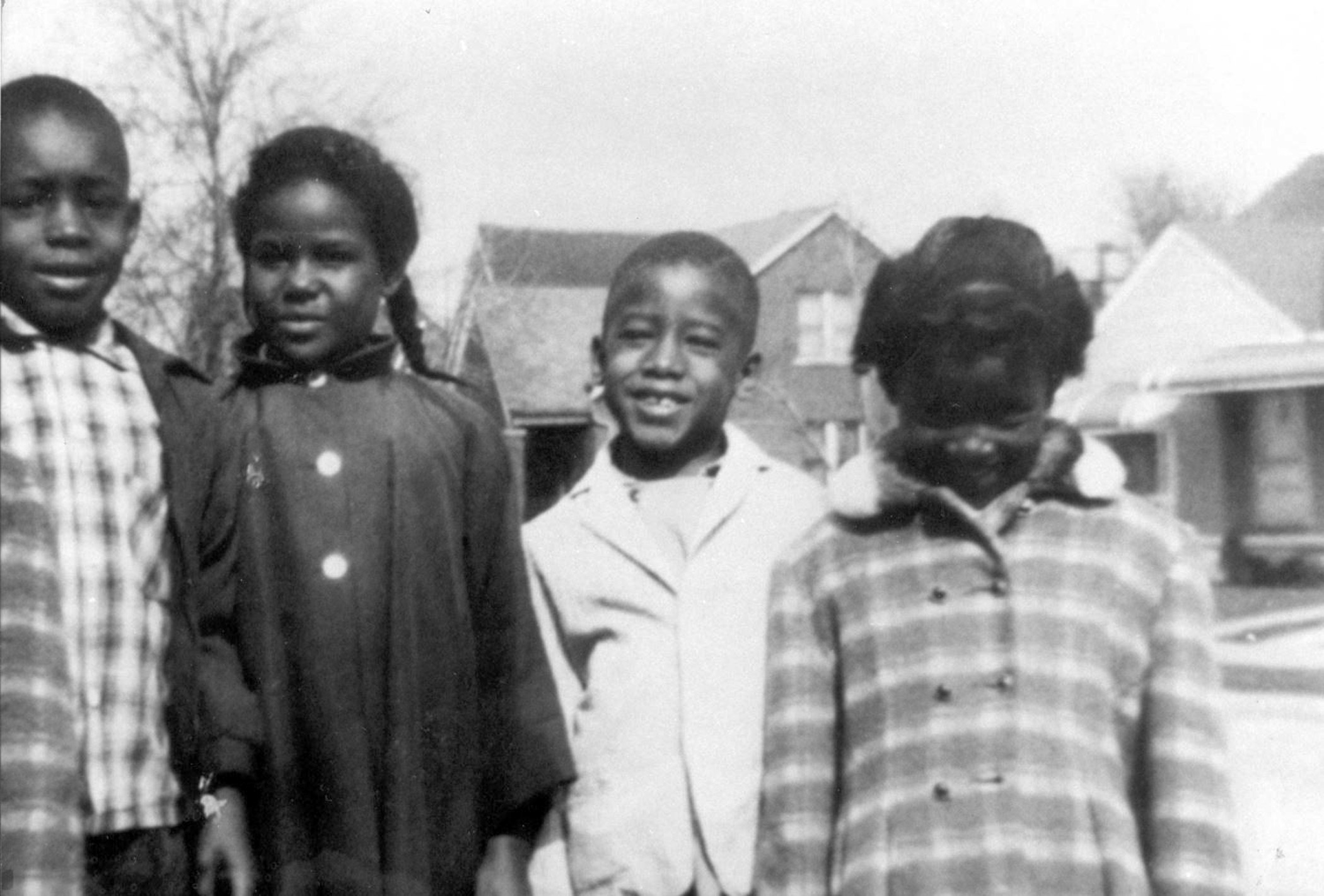
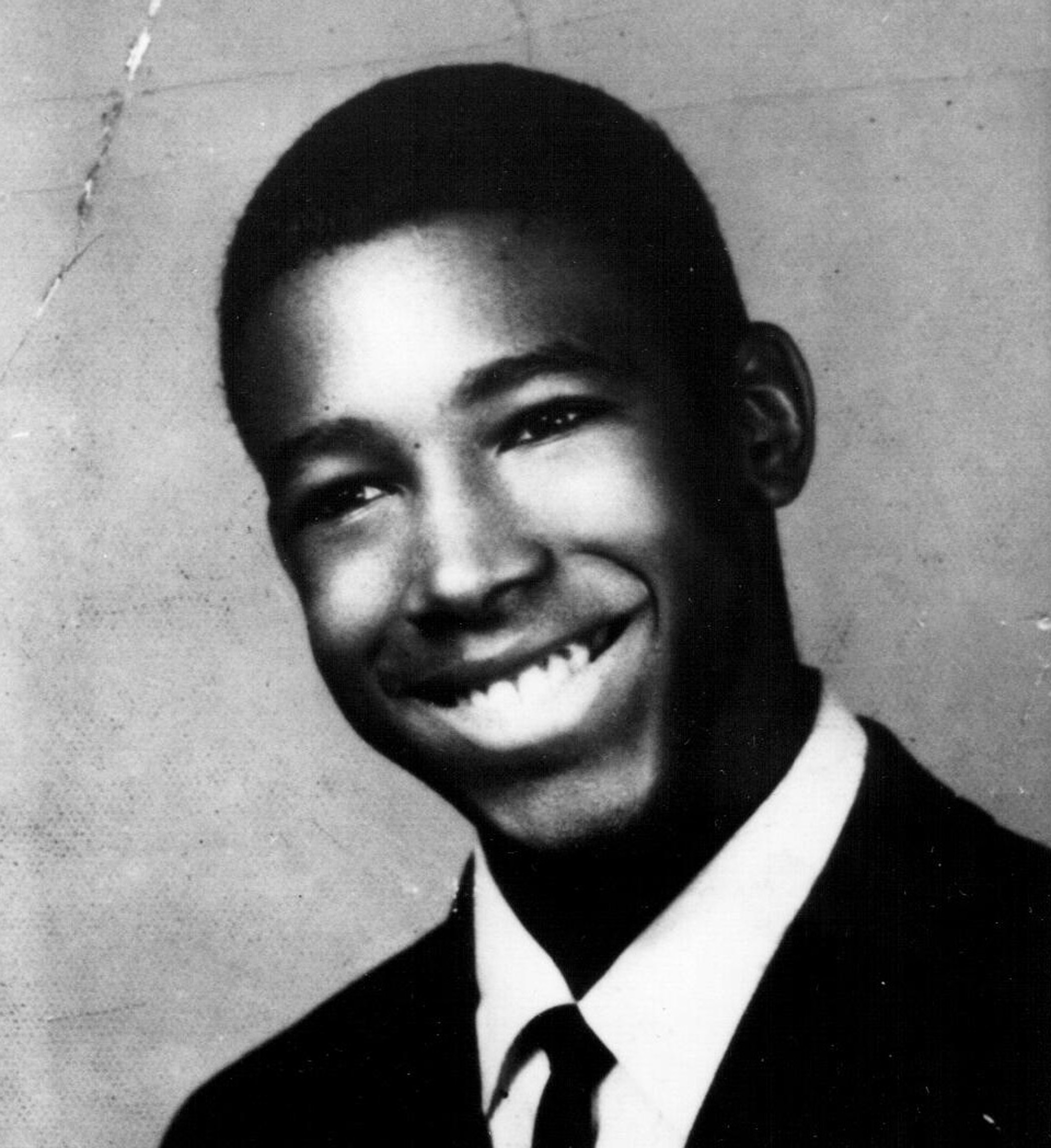
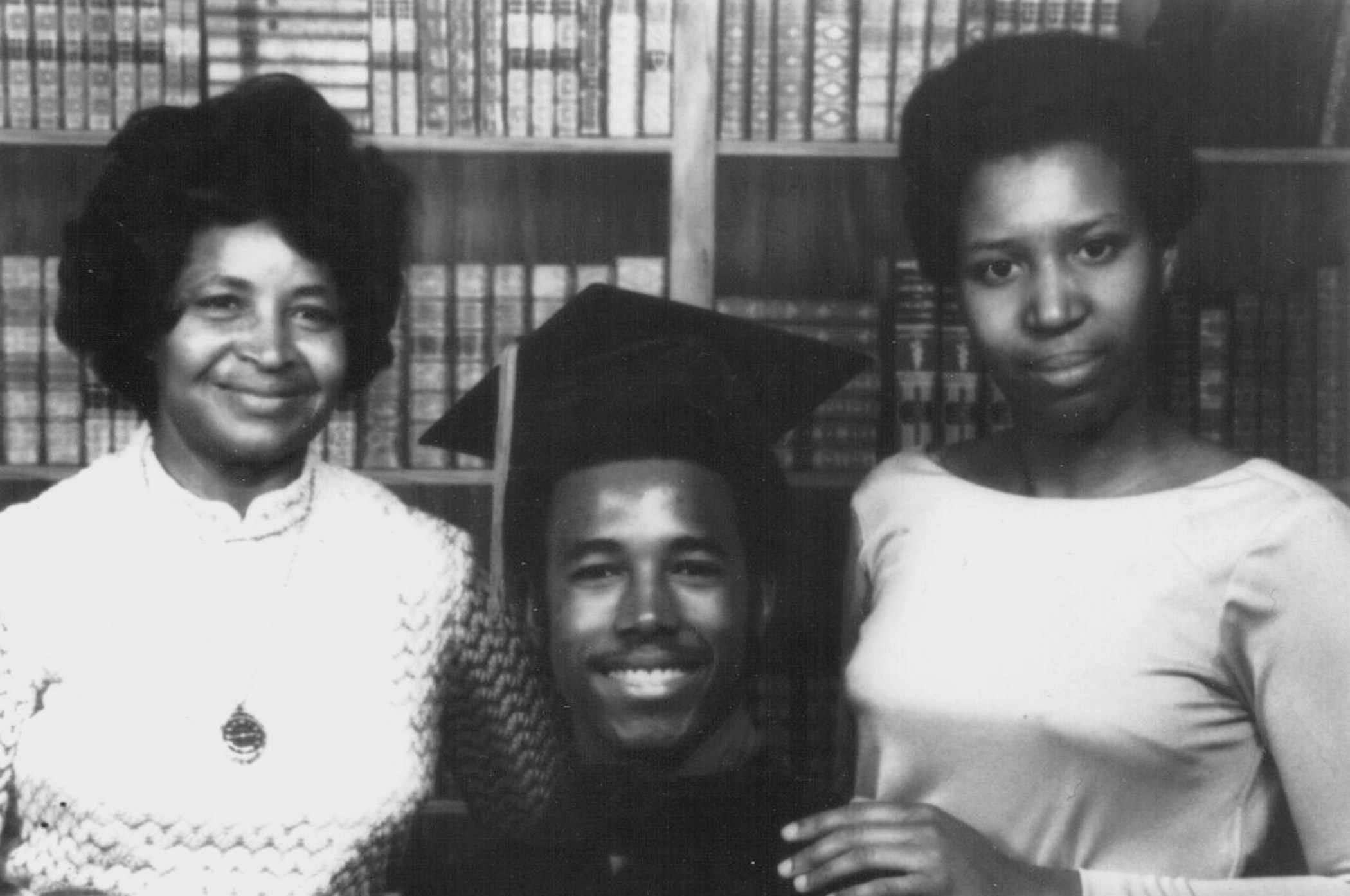
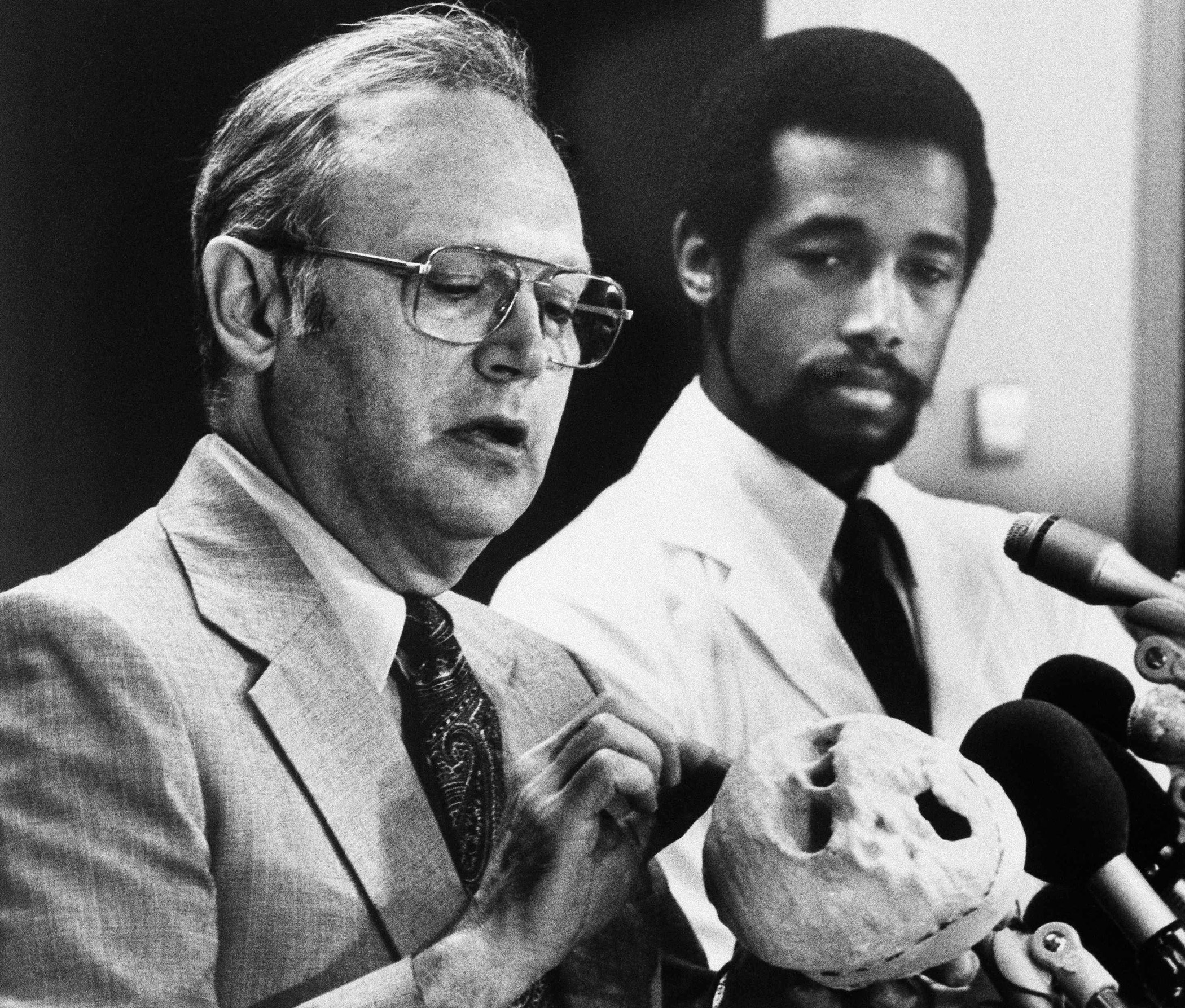
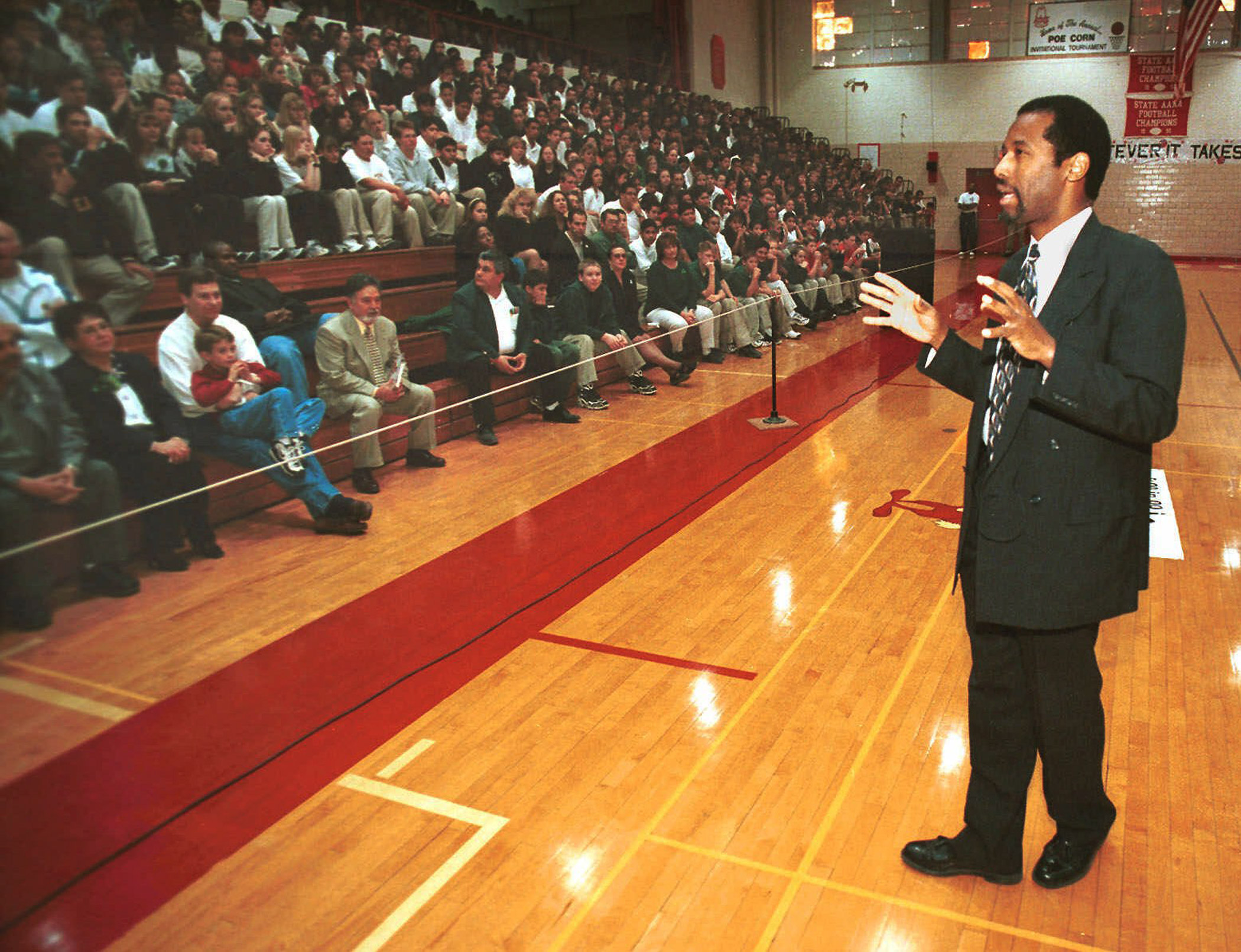
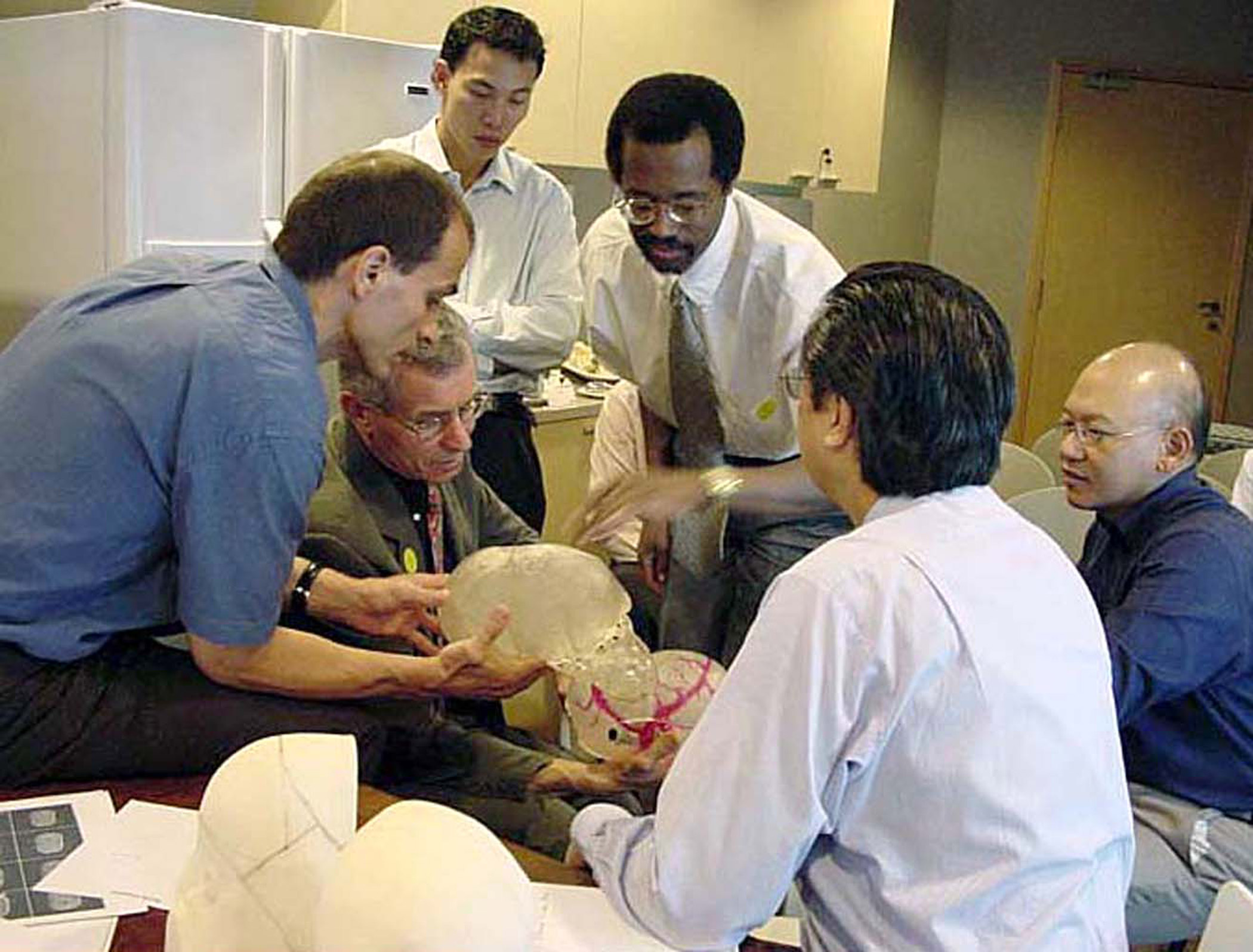
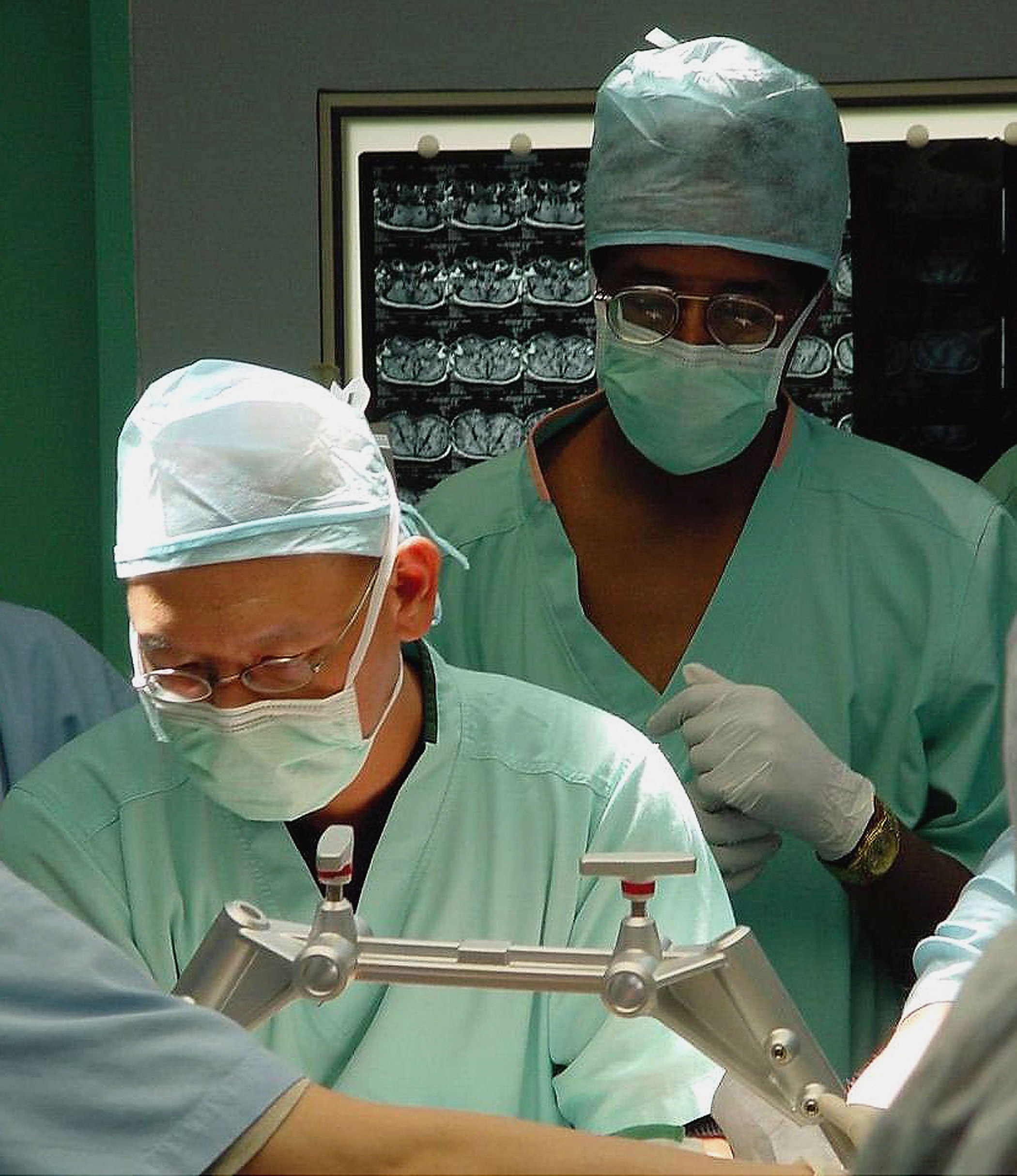
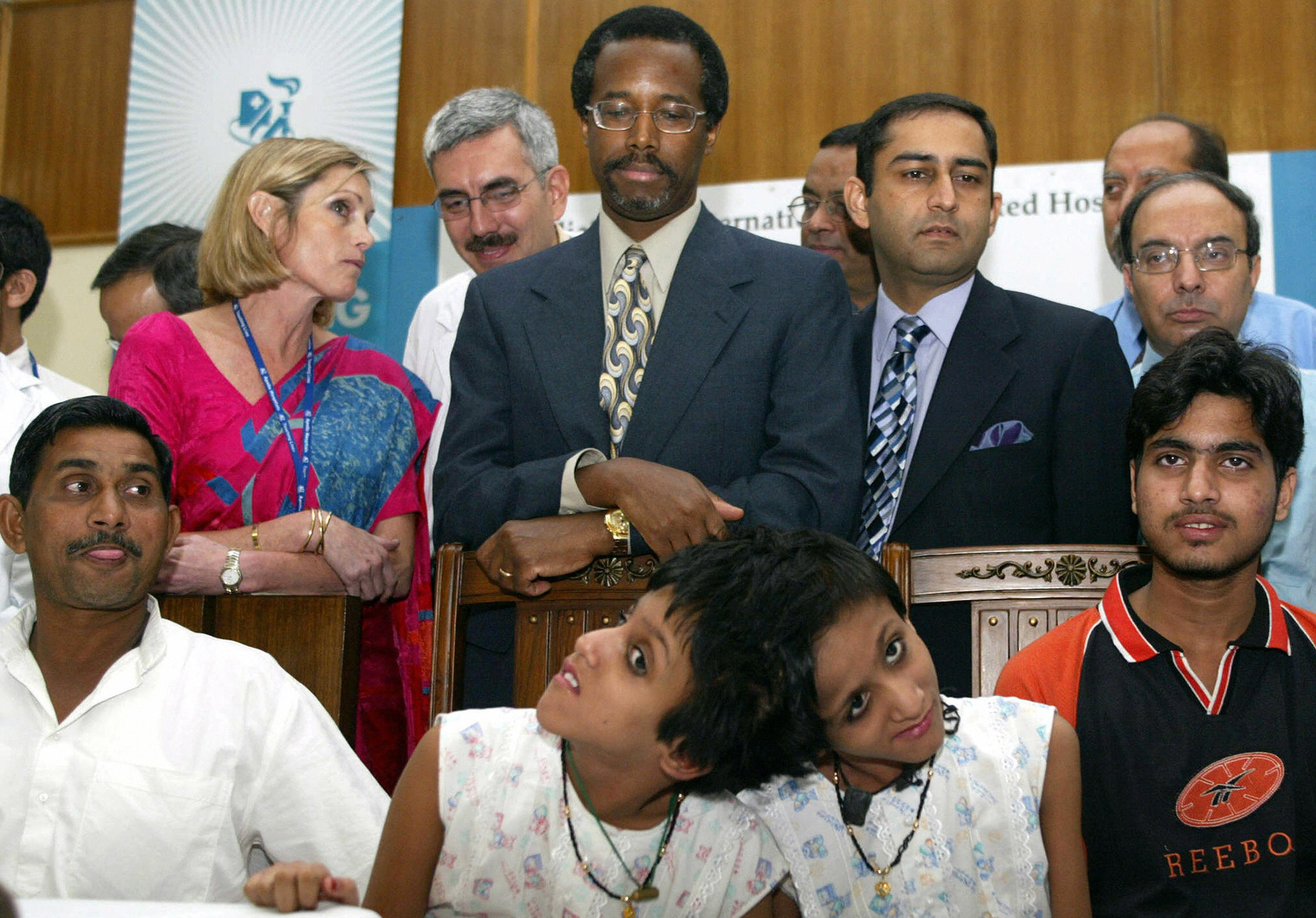
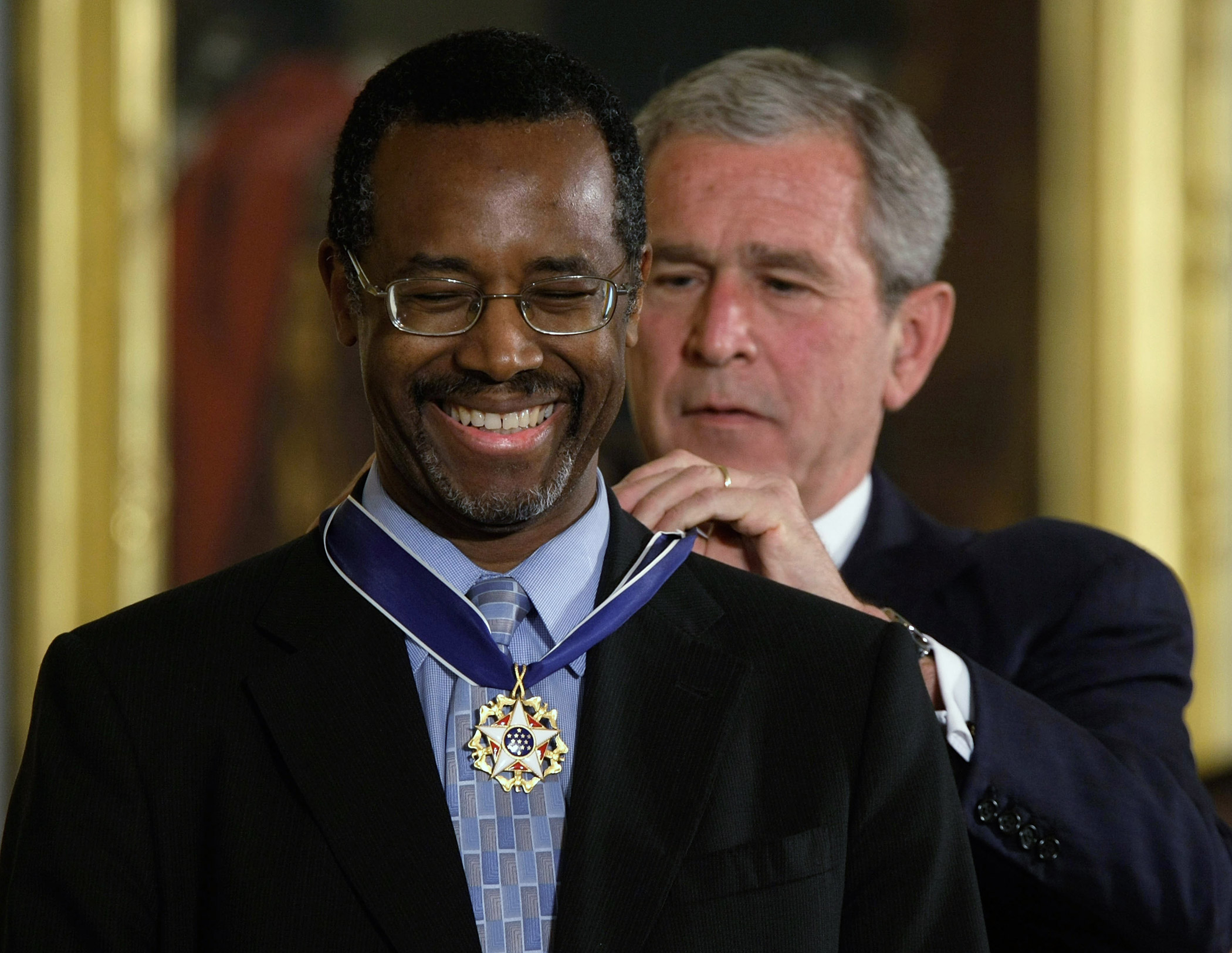
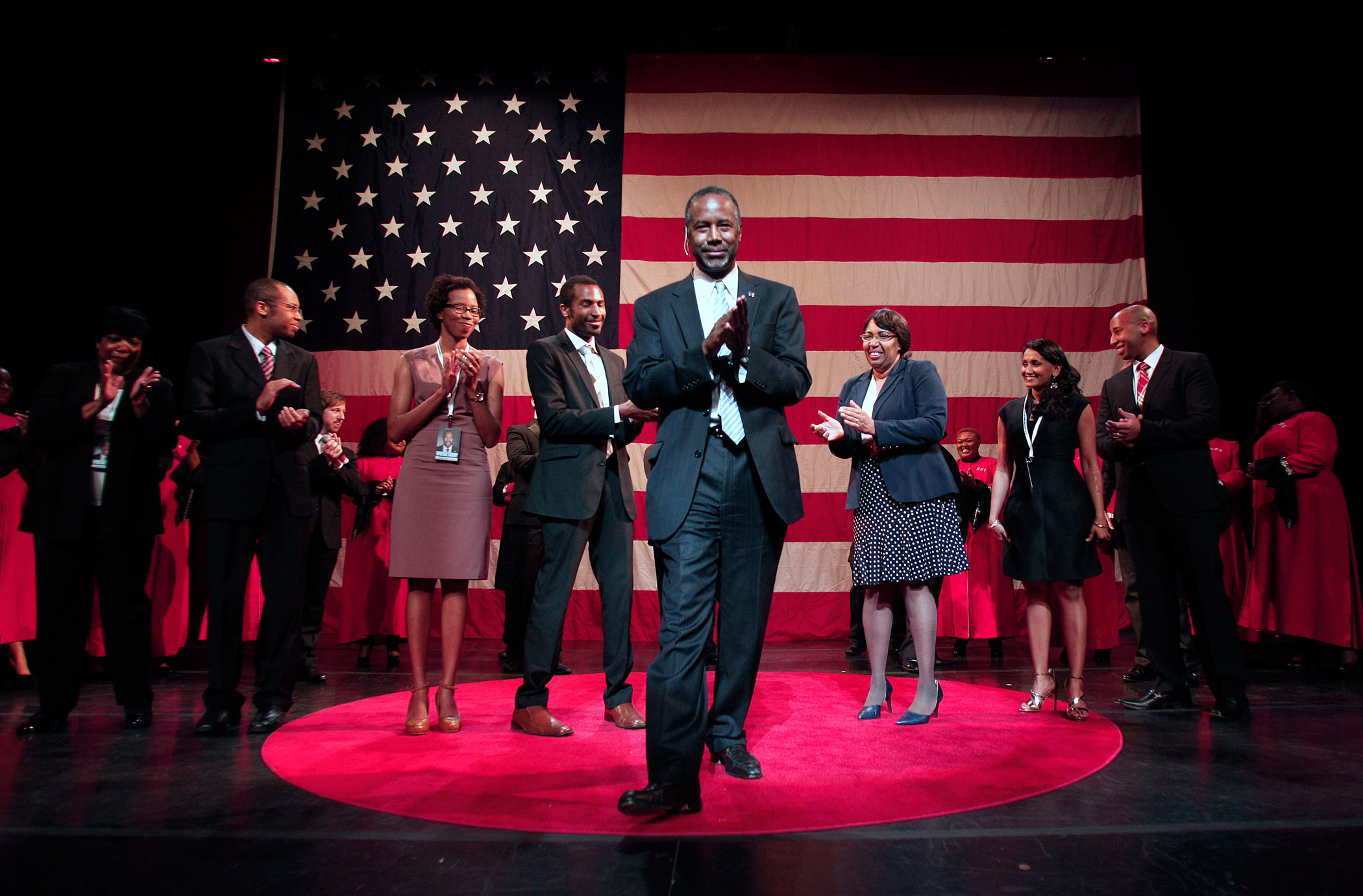
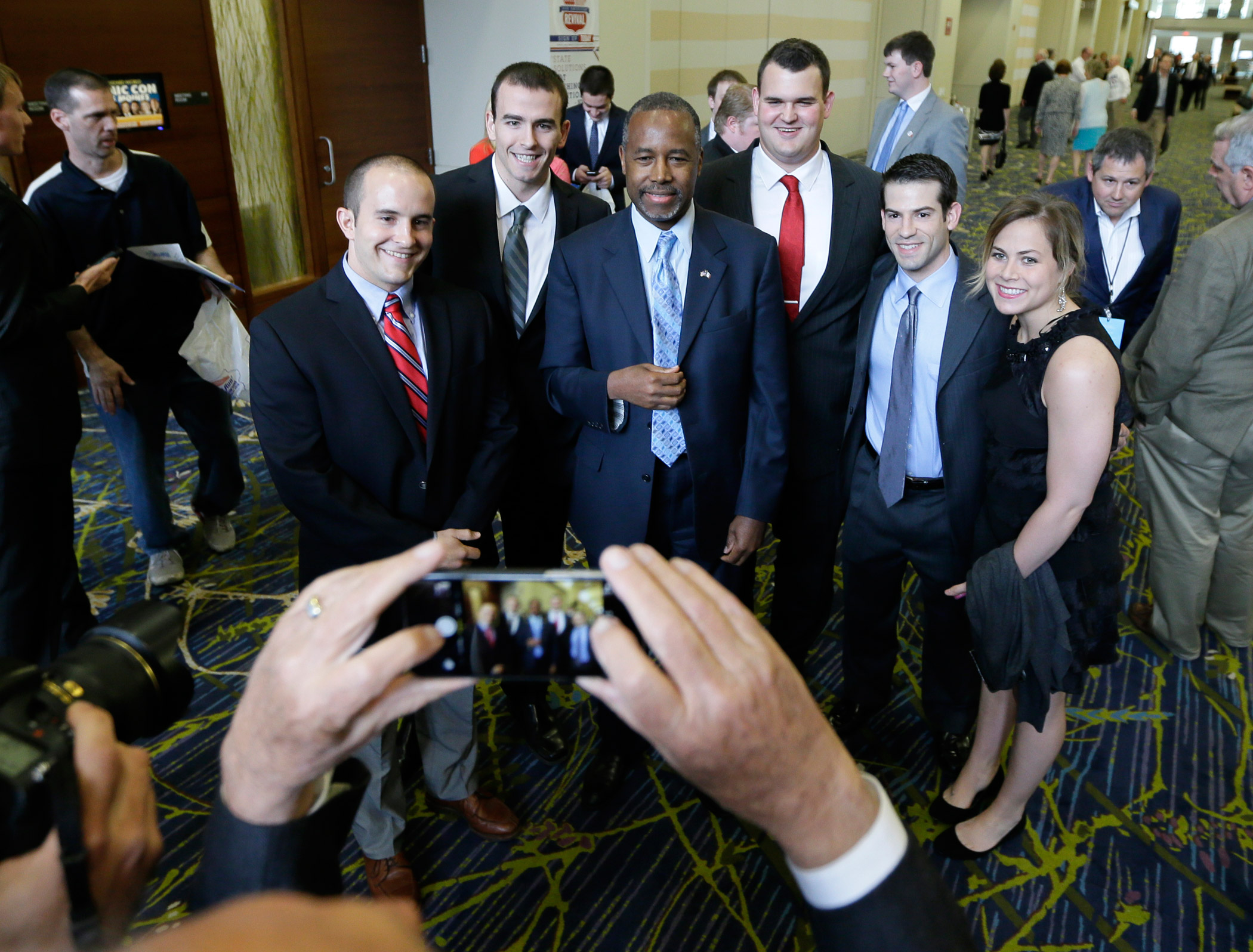
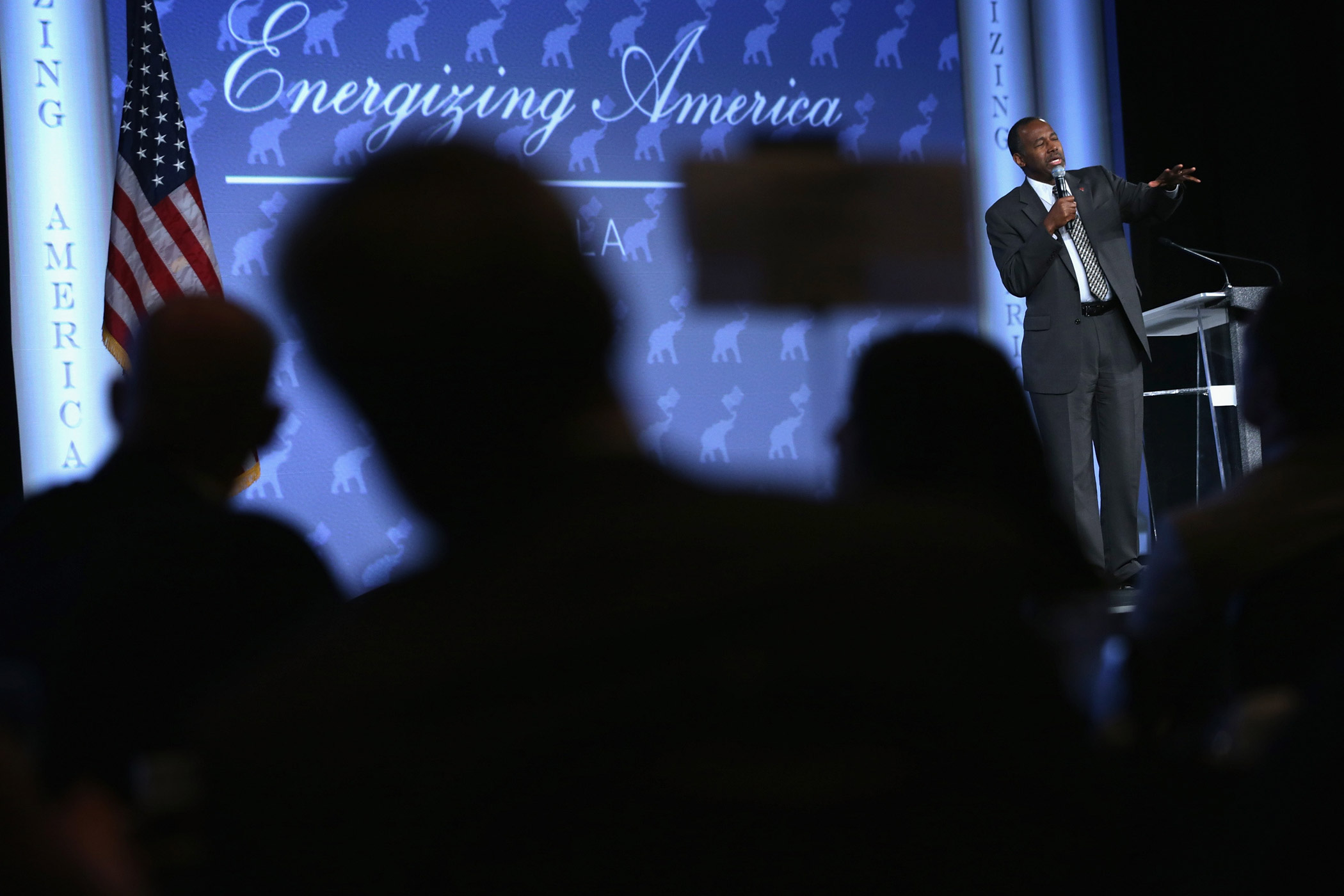
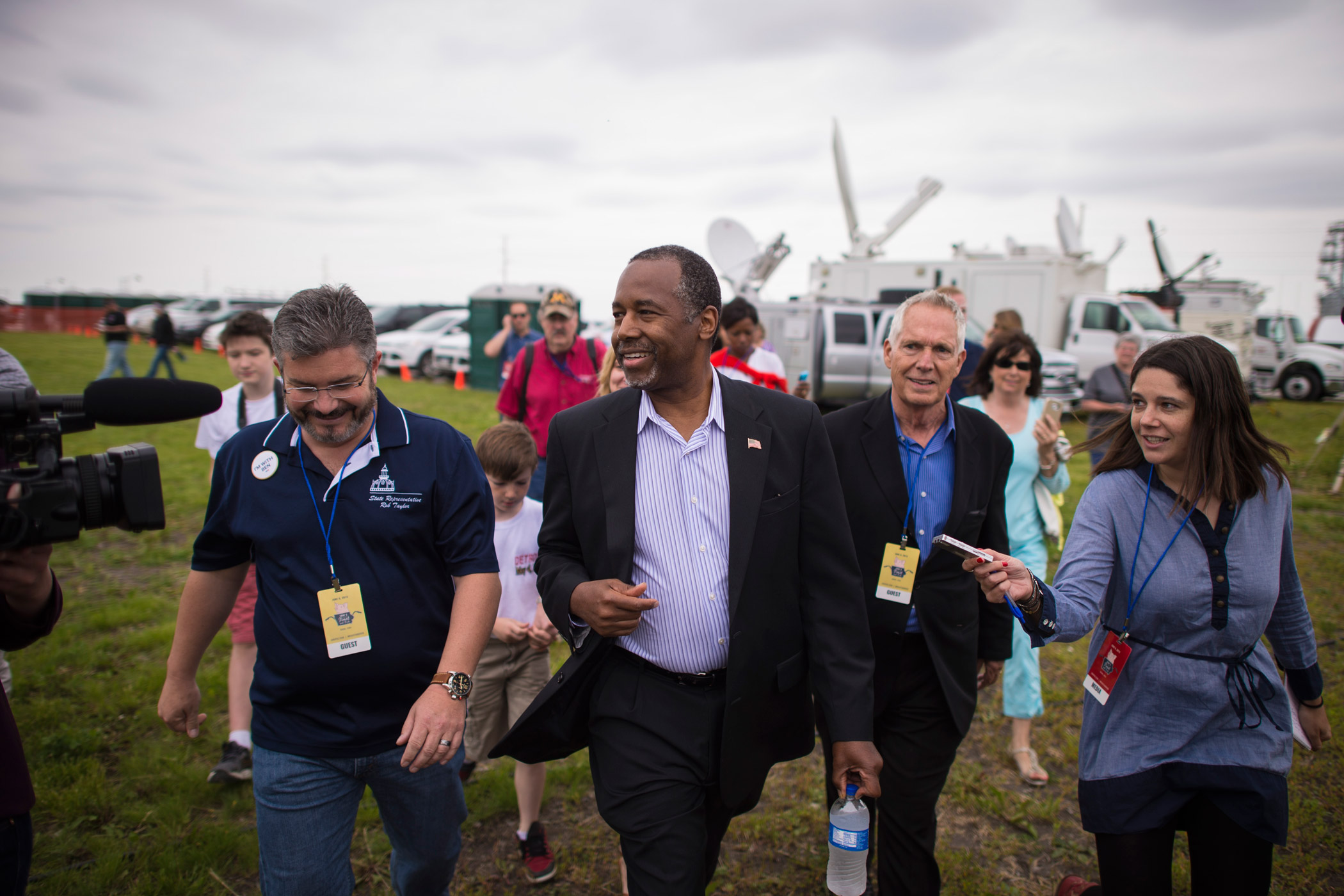
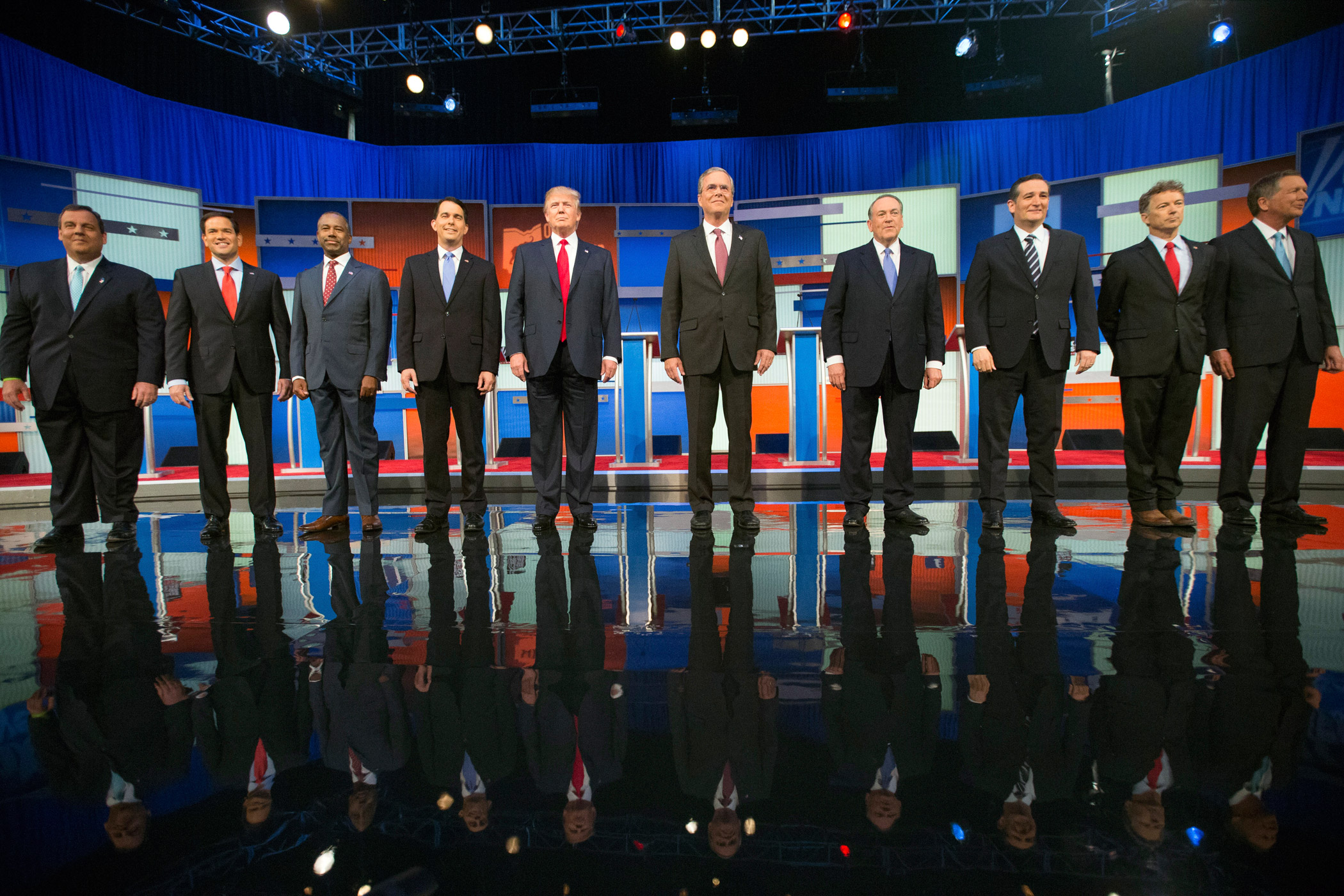
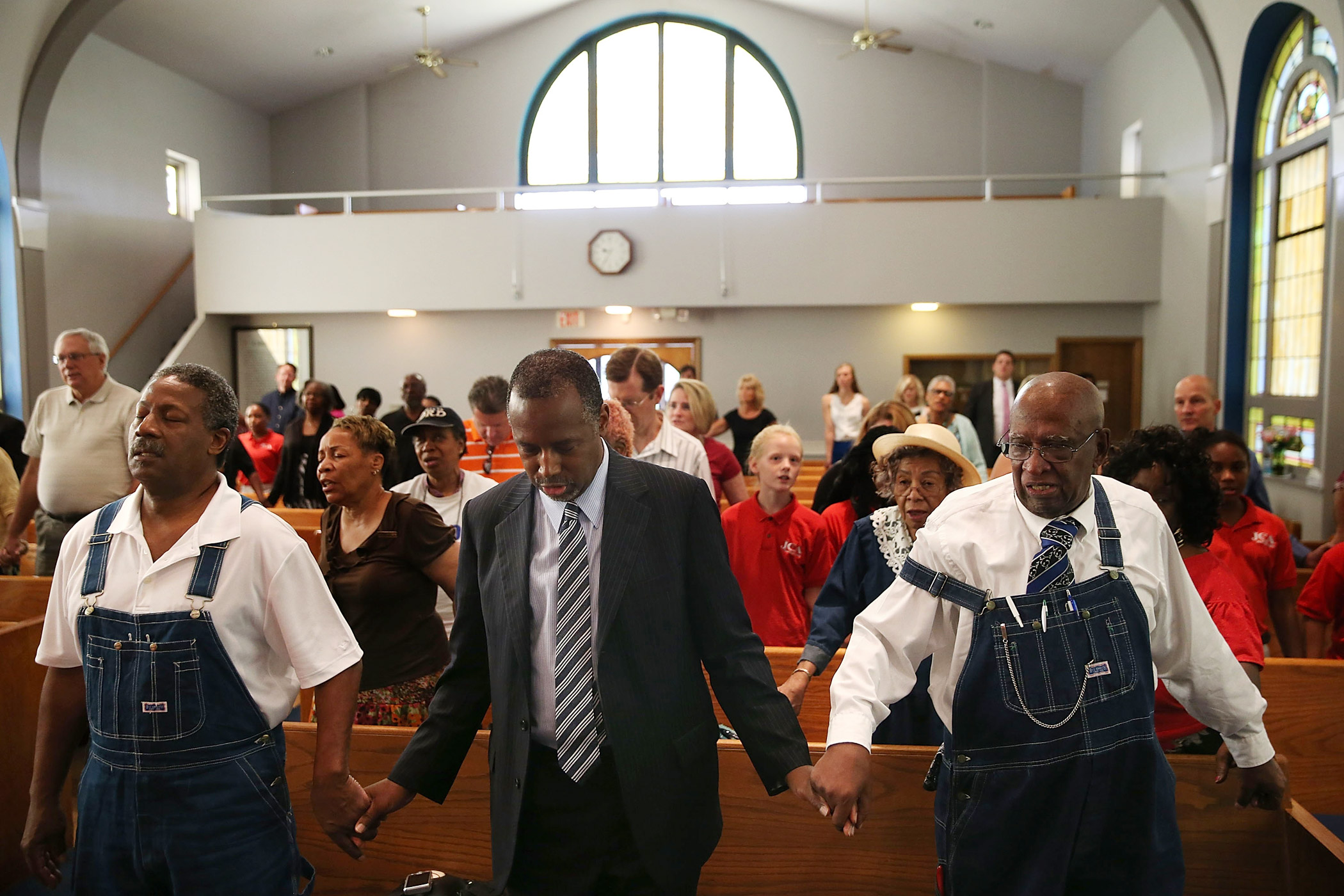
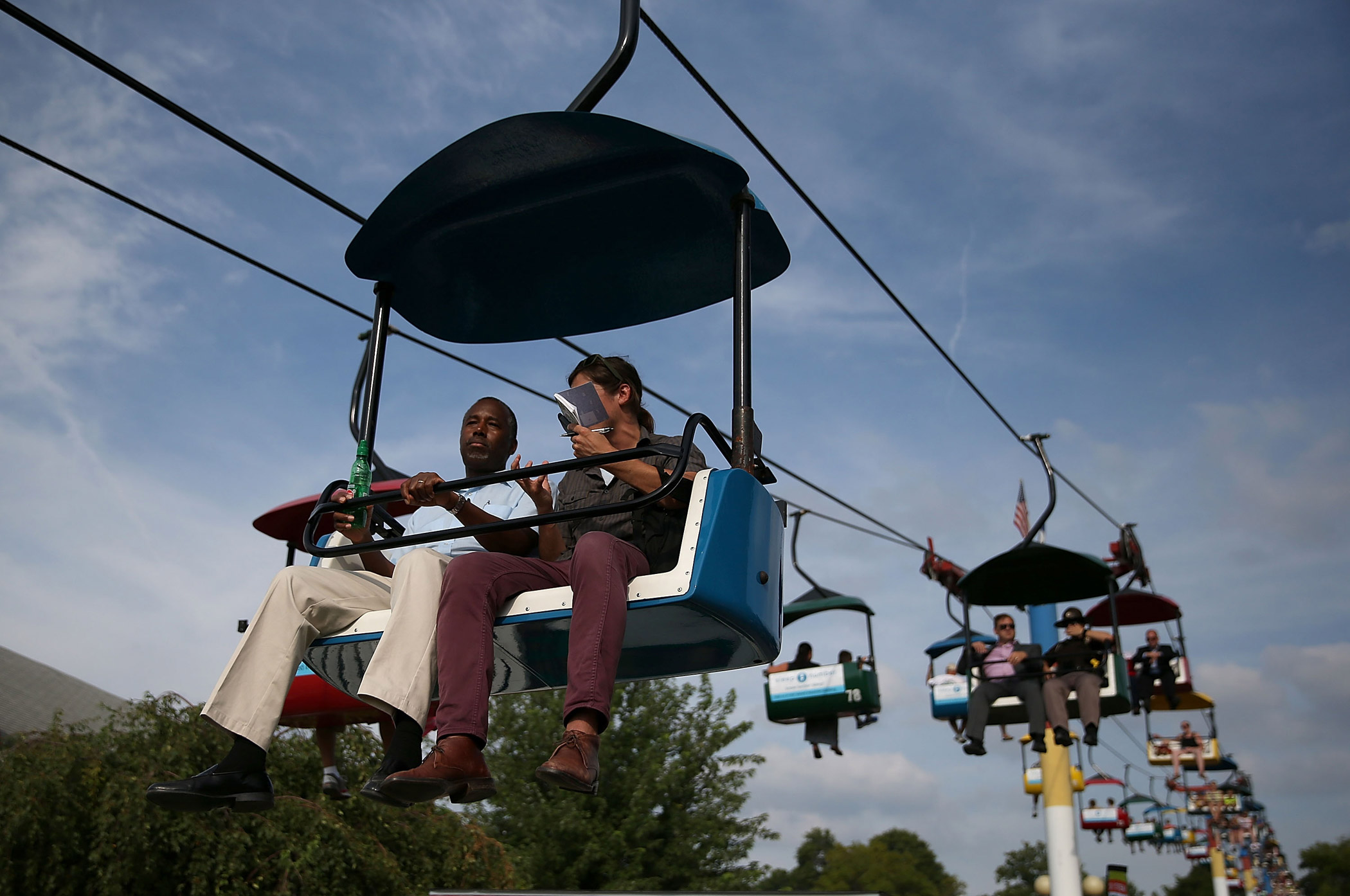
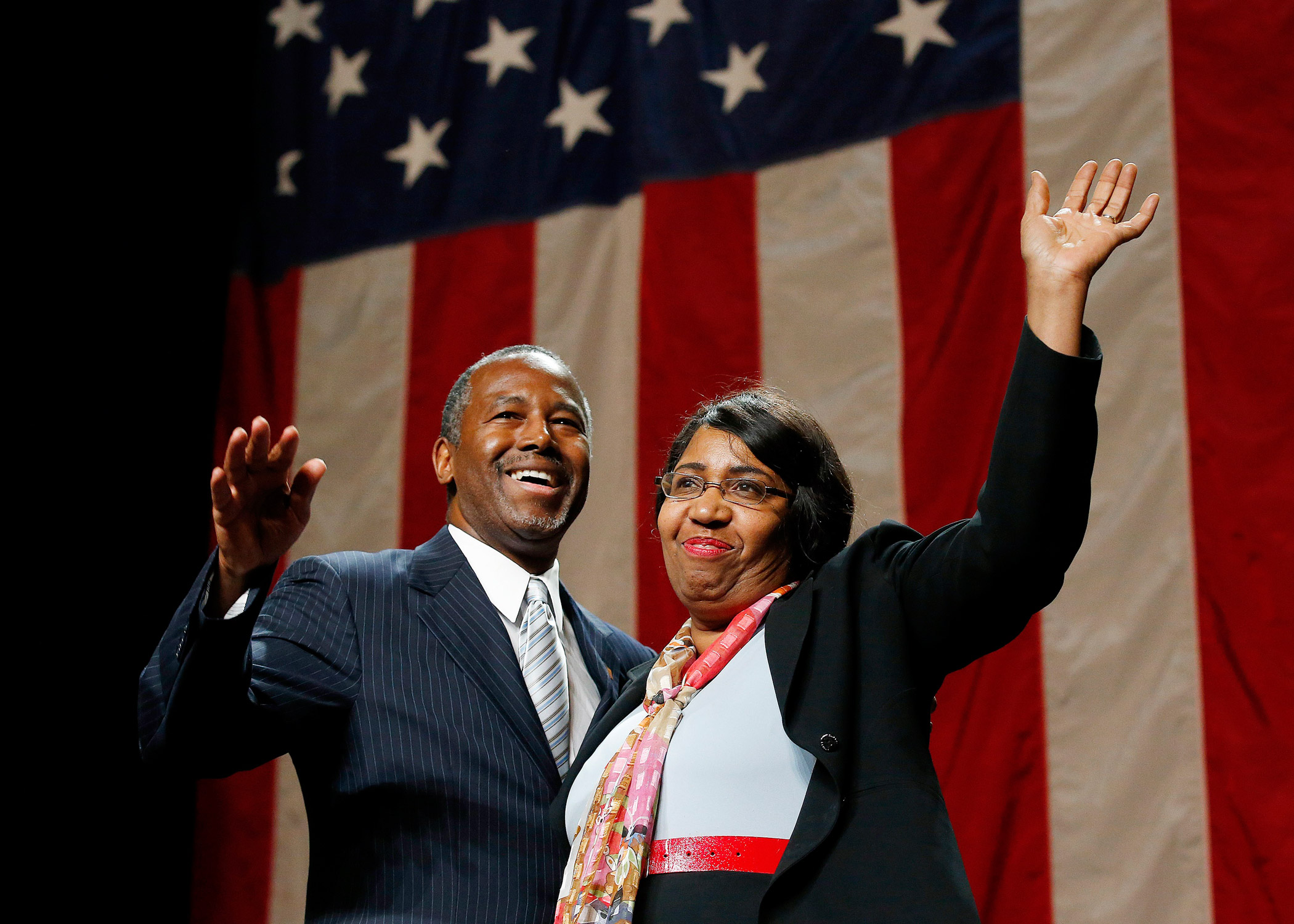
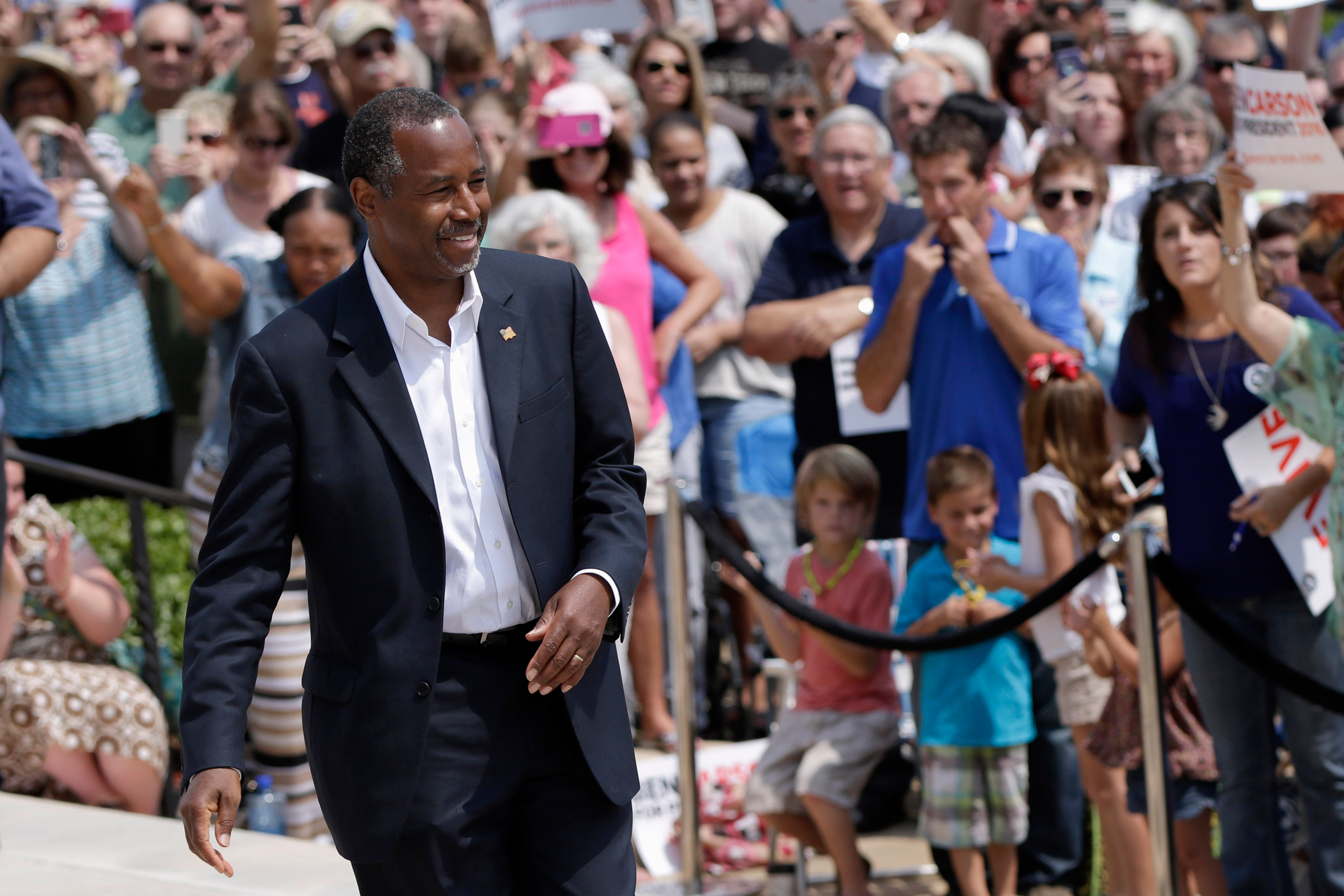
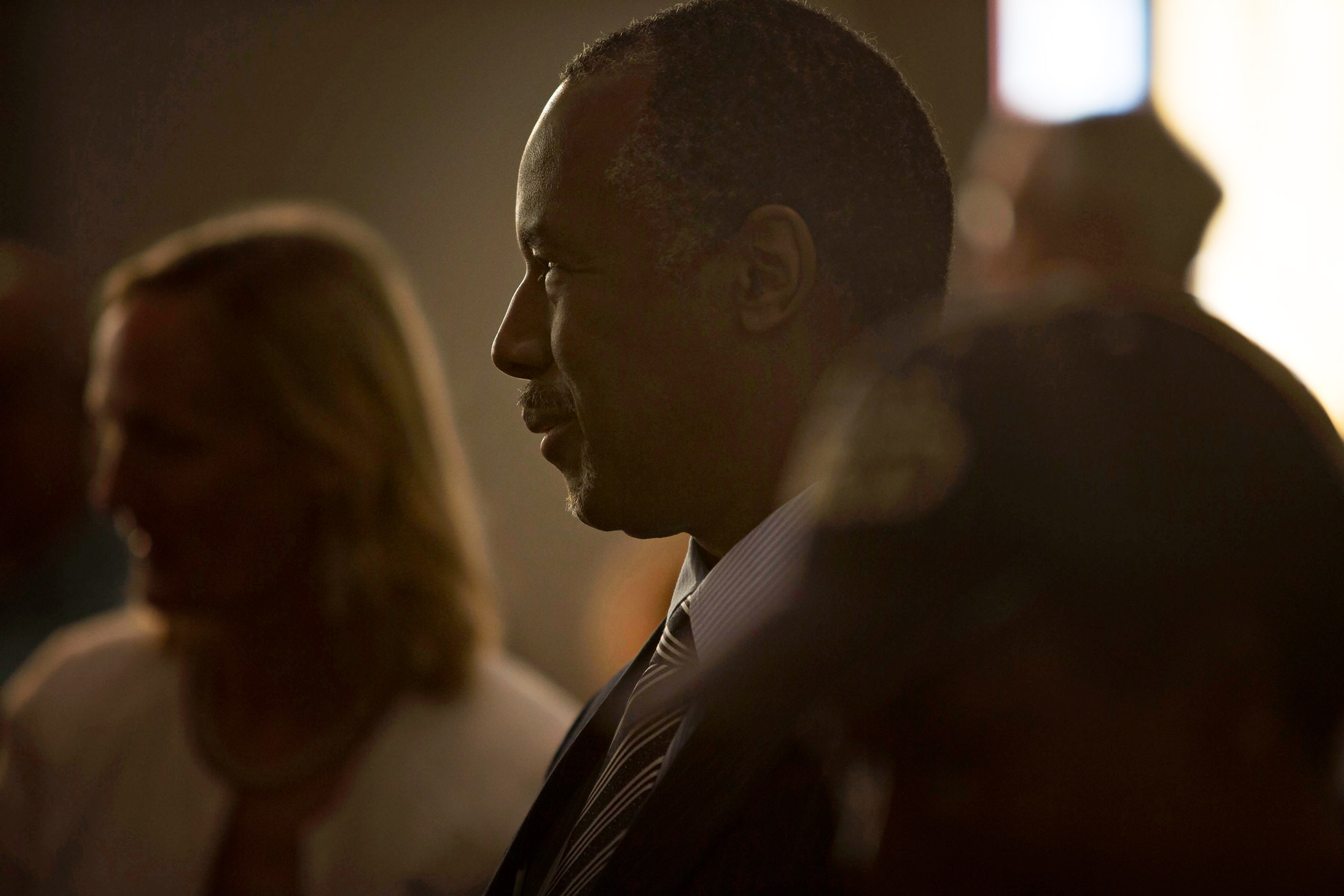
7 minutes. Cruz claims he is too agreeable, which is a joke that means he is not agreeable. New Jersey Gov. Chris Christie and Kentucky Sen. Rand Paul get back with the program and ignore the question. Christie attacks Democrats. Rand says he will be filibustering the bipartisan budget bill on Thursday. “I ask everyone in America to call Congress tomorrow and say enough is enough,” he says.
9 minutes. Trump, who doesn’t like tough questions, gets a tough question. CNBC’s John Harwood lists off the unlikely policies Trump has embraced, from deporting 11 million people, forcing Mexico to pay for a border wall and improving the economy with “your greatness.” “Is this a comic-book version of a presidential campaign?”
10 minutes. “No, not a comic book,” Trump says, who goes on to demonstrate all the ways this debate is basically a comic book. Harwood tries again. He says serious economists think the Trump tax plan has as much chance of causing an economic boom as Trump has of “flying away from that podium by flapping your arms.” Trump has a very nice Boeing jet. He doesn’t need to flap his arms. And besides, CNBC is basically a comic book too. “You have to get rid of Larry Kudlow,” Trump says of the CNBC commentator, “who came out the other day and said, ‘I love Trump’s tax plan.'” Win for Trump.
12 minutes. The moderators now try to get Carson to admit his tax plan, which is to set everyone’s taxes at about 15%, makes no sense. “It works out very well,” he says, and then chaos breaks out. “I want to comment on this. This is fantasy,” shouts out Kasich. He wins the floor. “Folks, we’ve got to wake up,” he continues. “We cannot elect somebody that doesn’t know how to do the job.” It’s no longer a comic book. It has become a fantasy. Or a dream. Or a nightmare. Can anyone wake up?
16 minutes. Trump will not stand for this, so he starts insulting Kasich. “This was the man that was a managing general partner at Lehman Brothers when it went down the tubes and almost took every one of us with it, including Ben and myself,” Trump says. “So you know what? You can have him.”
17 minutes. Carson still wants to answer the question he got about his tax plan. He tries to do some quick math on the fly. “If you’re talking about an $18 trillion economy, you’re talking about a 15% tax on your gross domestic product. You’re talking about $2.7 trillion. We have a budget closer to $3.5 trillion,” he says. “But if you also apply that same 15% to several other things, including corporate taxes, and including the capital gains taxes, you make that amount up pretty quickly.”
19 minutes. Fiorina has some numbers of her own. “We now have a 73,000-page tax code,” she says. “There have been more than 4,000 changes to the tax plan since 2001 alone.” Then she says she will shrink the code. “Three pages is about the maximum that a single business owner or a farmer or a couple can understand without hiring somebody,” she says. Is that true? Depends on the farmer, perhaps. Also depends on the comic-book fantasy, and who is having the nightmare.
20 minutes. Now the moderators pick on Rubio. “You’re skipping more votes than any Senator to run for President,” says CNBC’s Carl Quintanilla. “Why not slow down?” Rubio is ready. Like all his answers, he delivers it calmly and smoothly. He points out that every Senator who has ever run for President in the modern era has missed a lot of votes, including John McCain and Barack Obama. “This is another example of the double standard that exists in this country between the mainstream media and the conservative movement,” Rubio says. For the first time in the night, the audience erupts in applause. Rubio wins.
23 minutes. Bush can’t fake anger, but he has to fake aggression. So he interrupts to attack Rubio on his voting record, as if the audience had not just ended the discussion. “You can campaign, or just resign and let someone else take the job,” he says. It sounds ham-handed, and Rubio pounces. “I don’t remember you ever complaining about John McCain’s vote record,” Rubio says. “The only reason why you’re doing it now is because we’re running for the same position, and someone has convinced you that attacking me is going to help you.” Dead to rights. Applause again. The pupil has bested his mentor. Bush is speechless.
28 minutes. Cruz is asked a policy question about the budget deal that is headed for passage in Congress. But he erupts in a not very agreeable way, attacking the moderators for not asking more about policy. “This is not a cage match,” Cruz says. “How about talking about the substantive issue people care about?” Quintanilla points out he just asked a substantive question. But Cruz won’t stop his rant. “The questions that are being asked shouldn’t be trying to get people to tear into each other,” he says, as his time expires. The moderators move on, with the same substantive question for Paul, who gives a substantive answer.
See Ted Cruz's Life in Photos
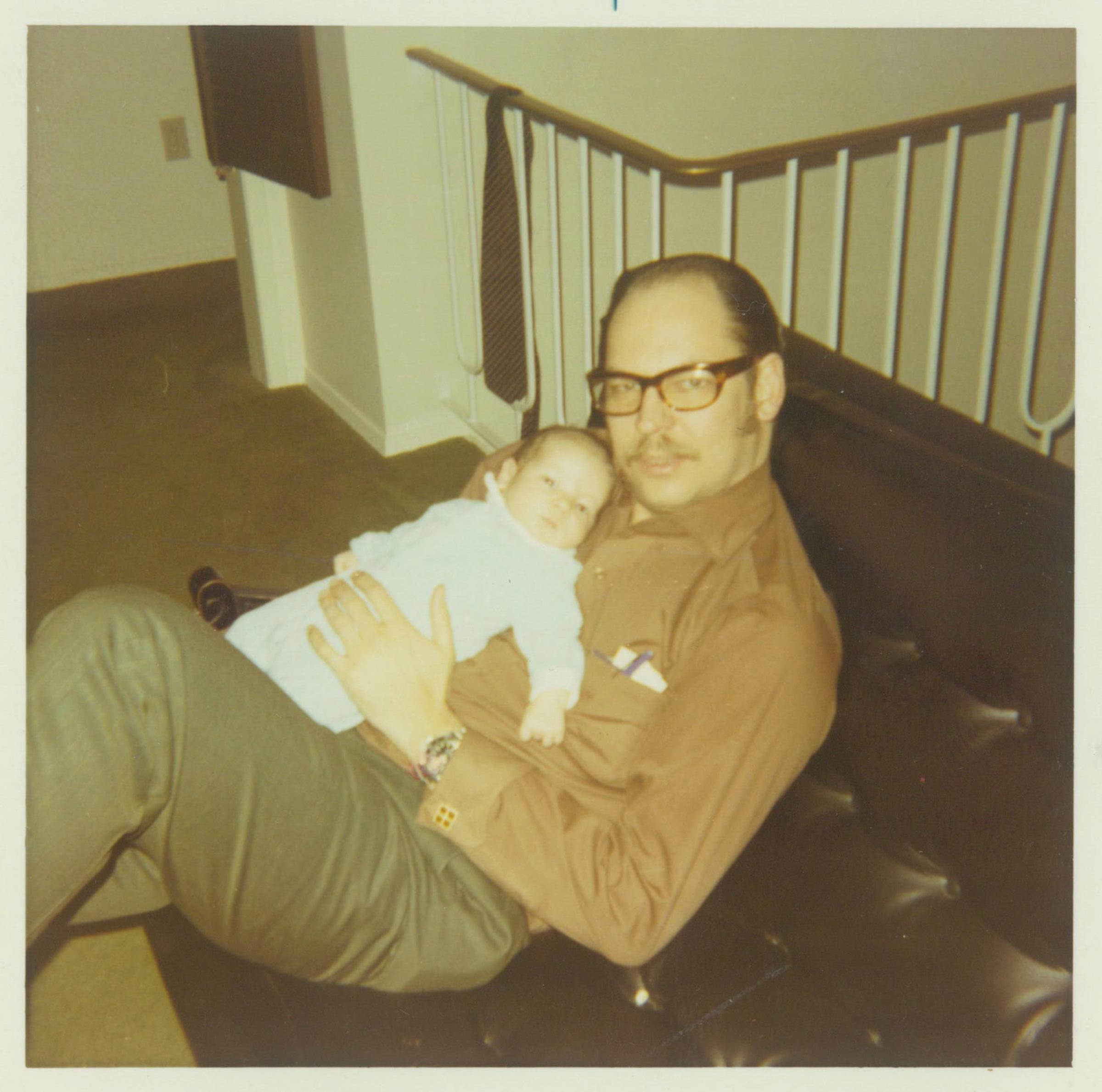
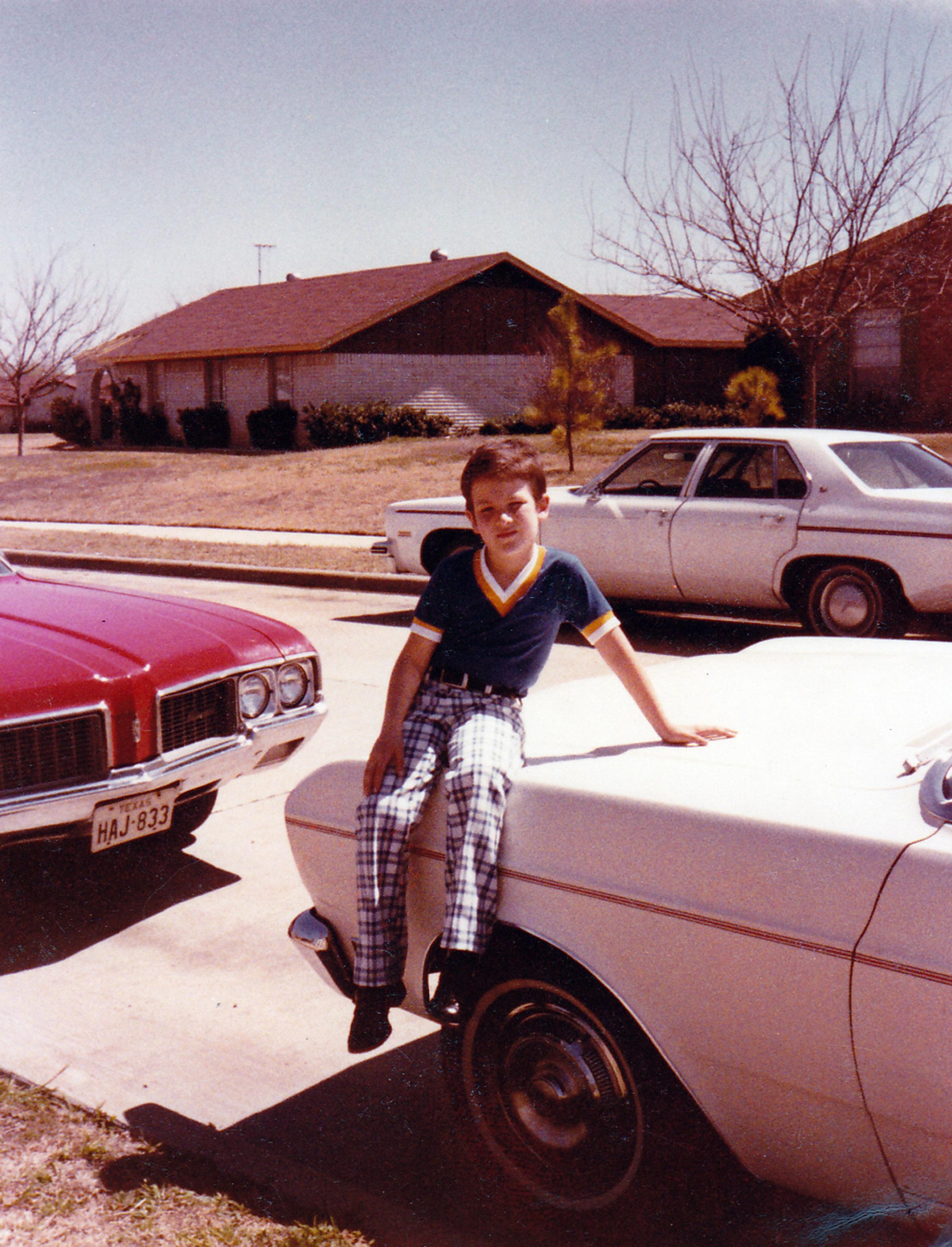
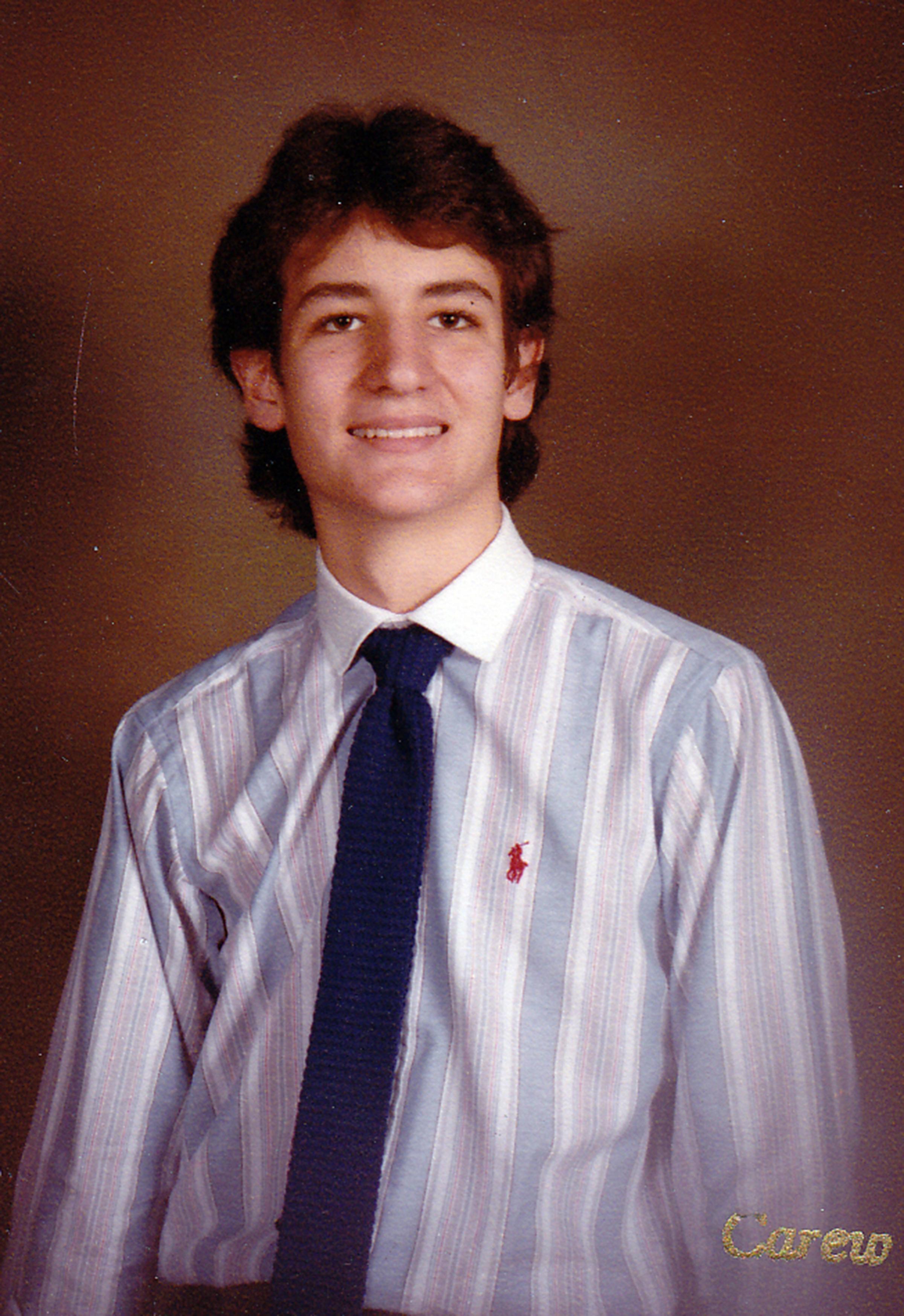
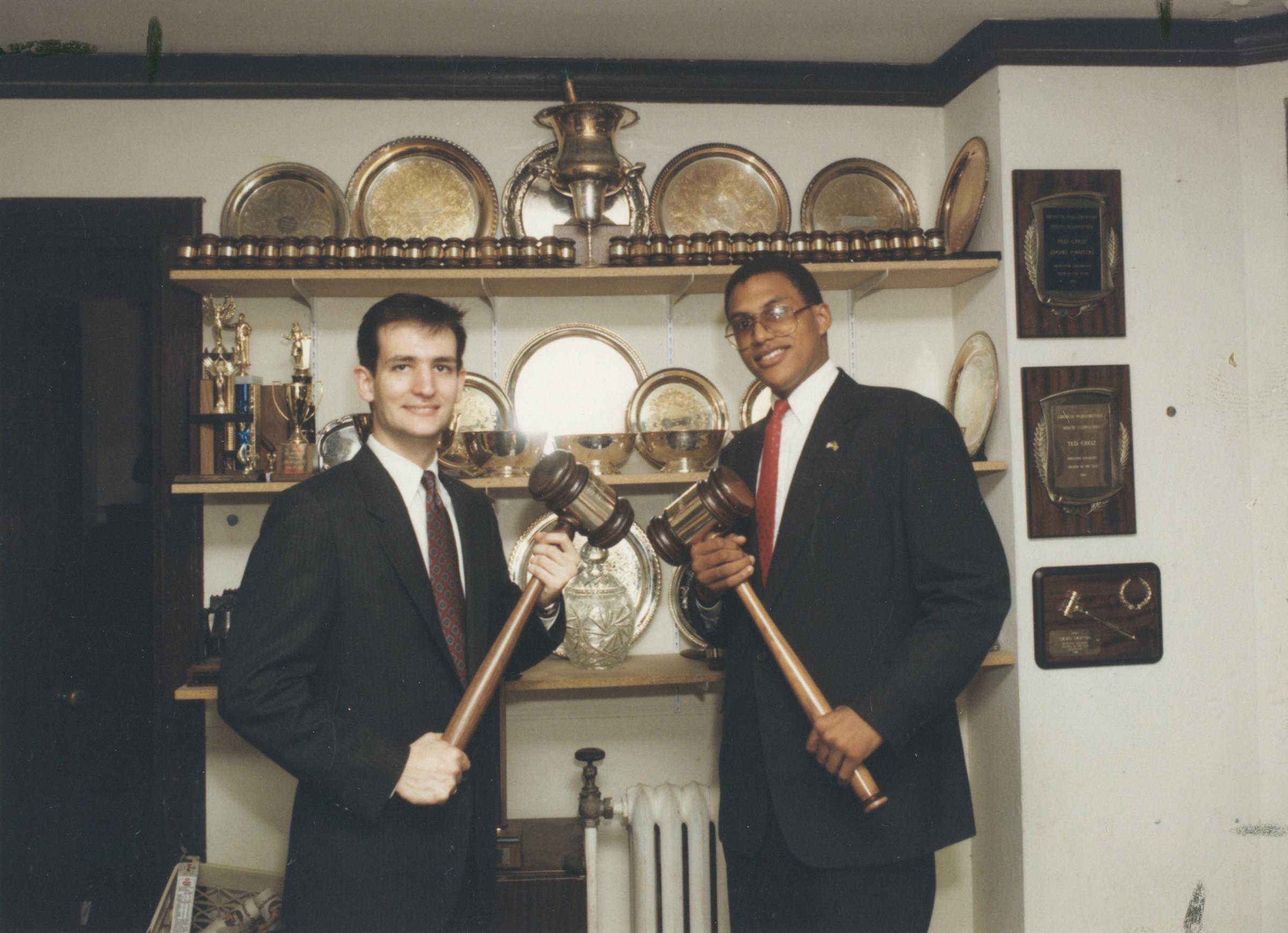
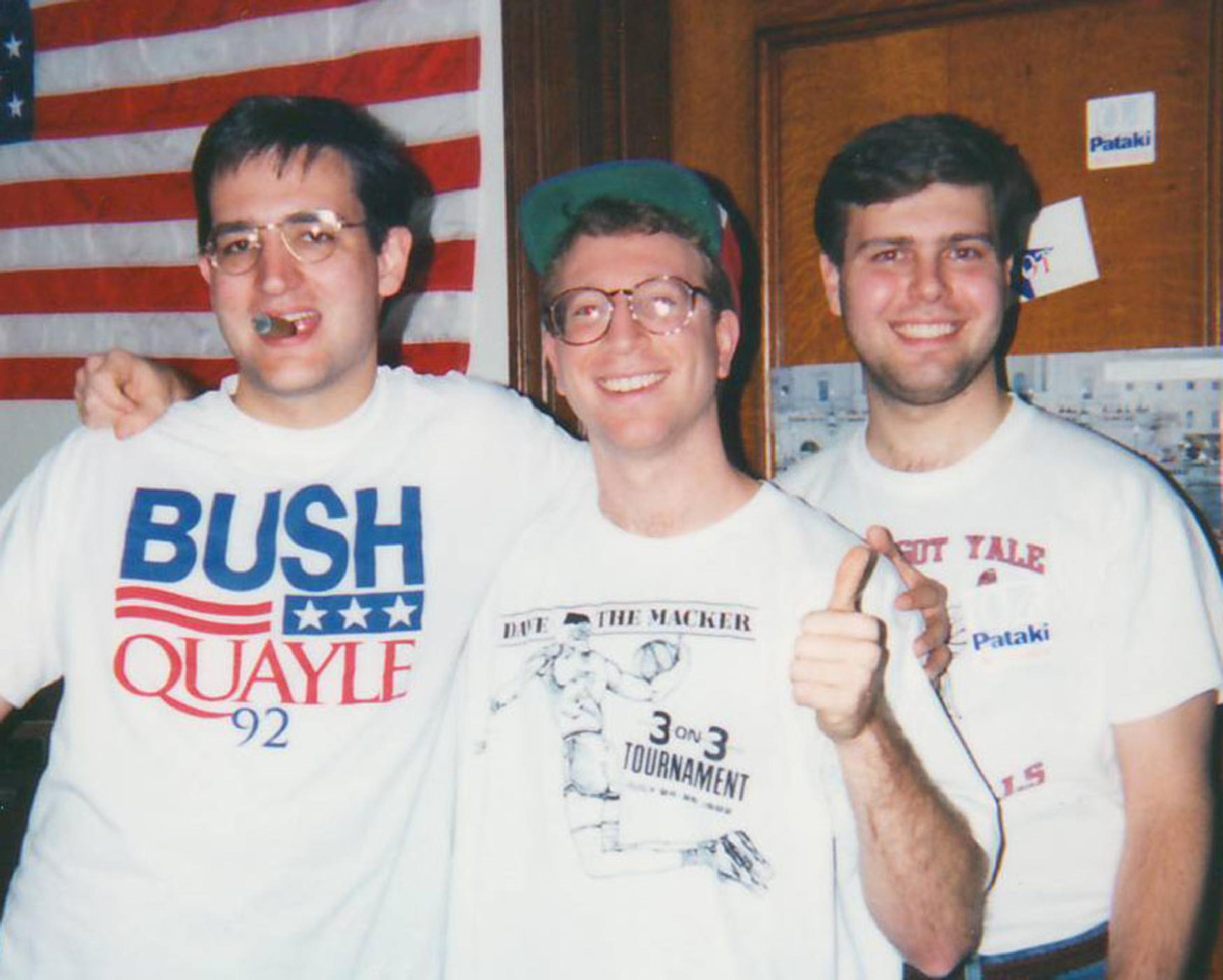
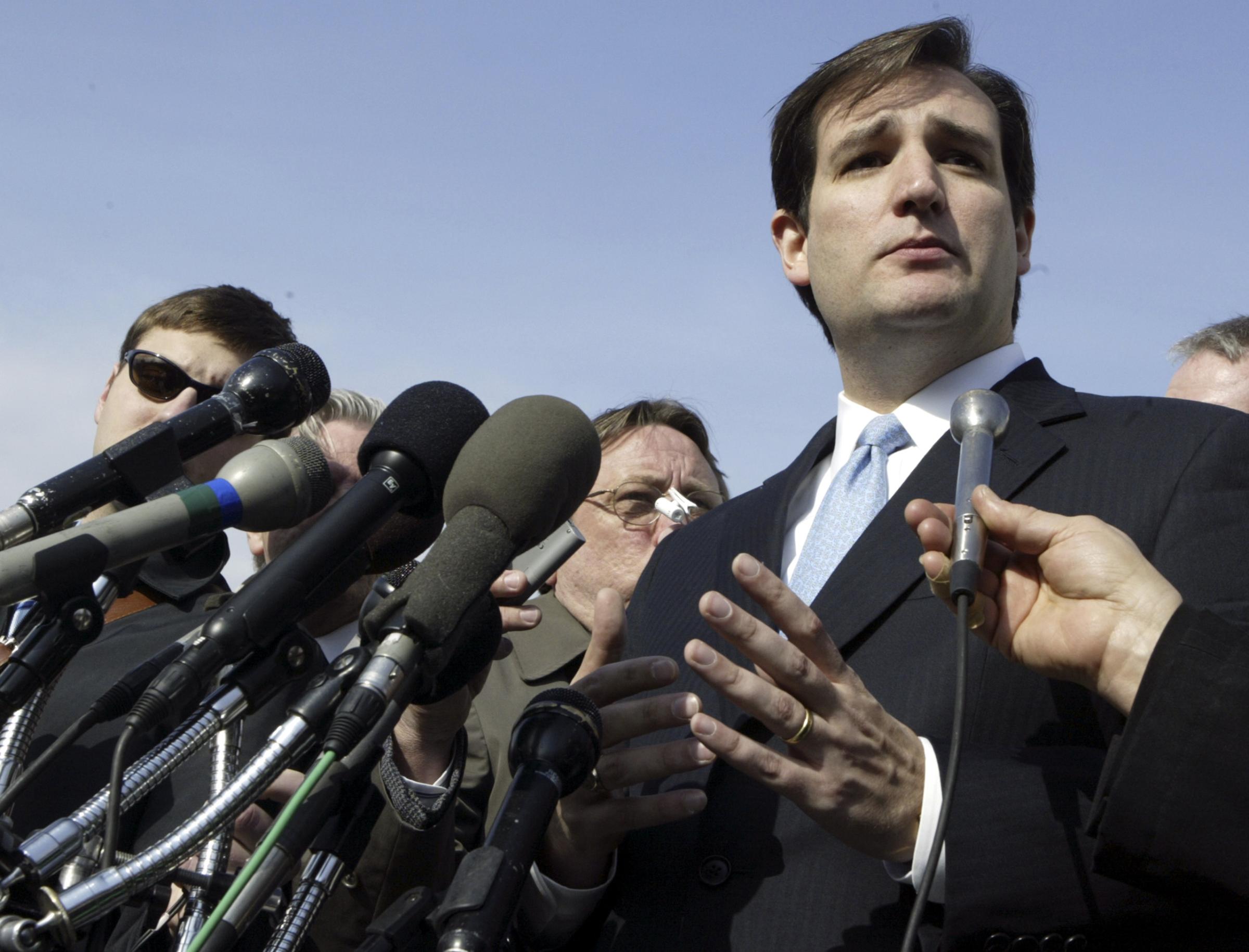

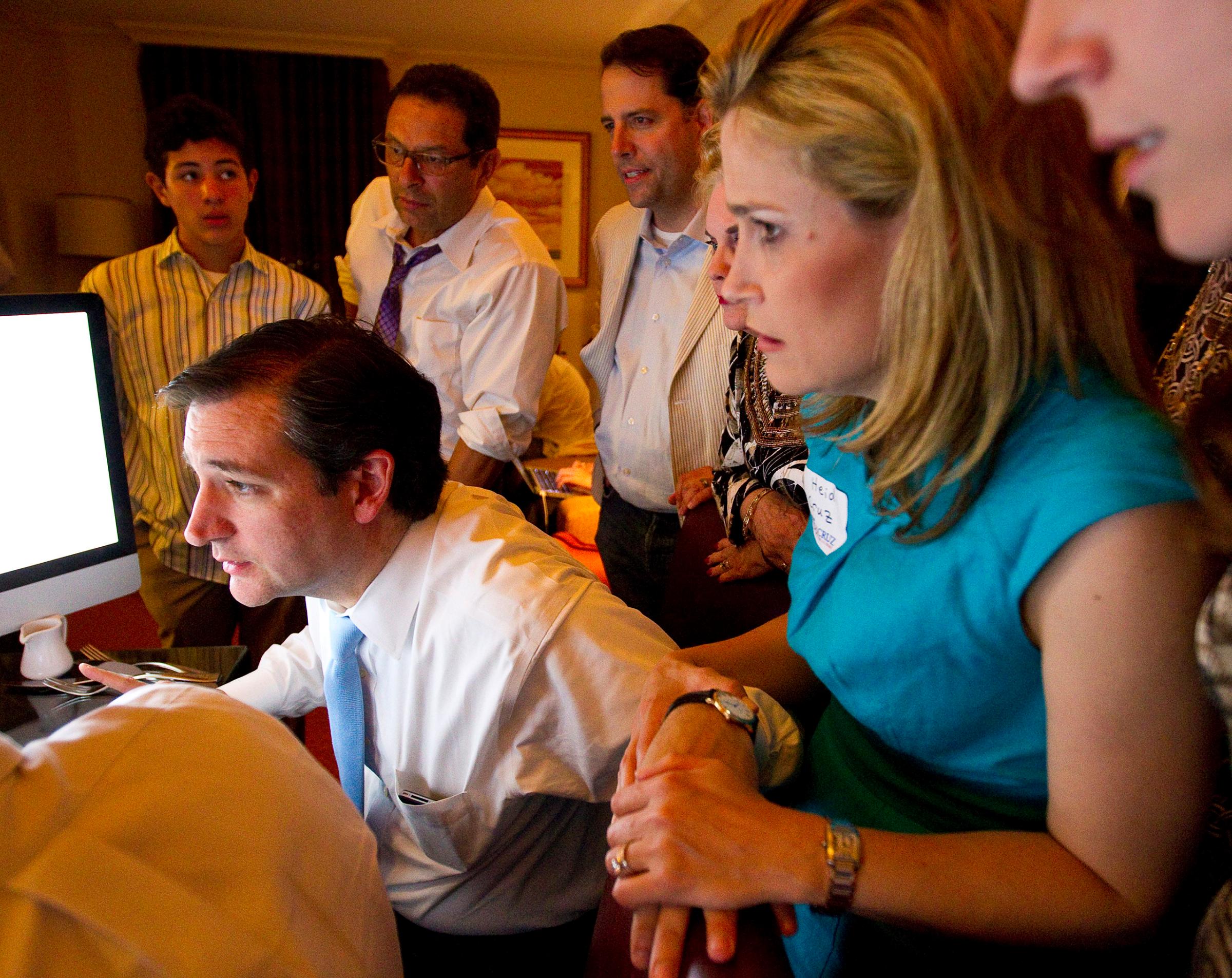
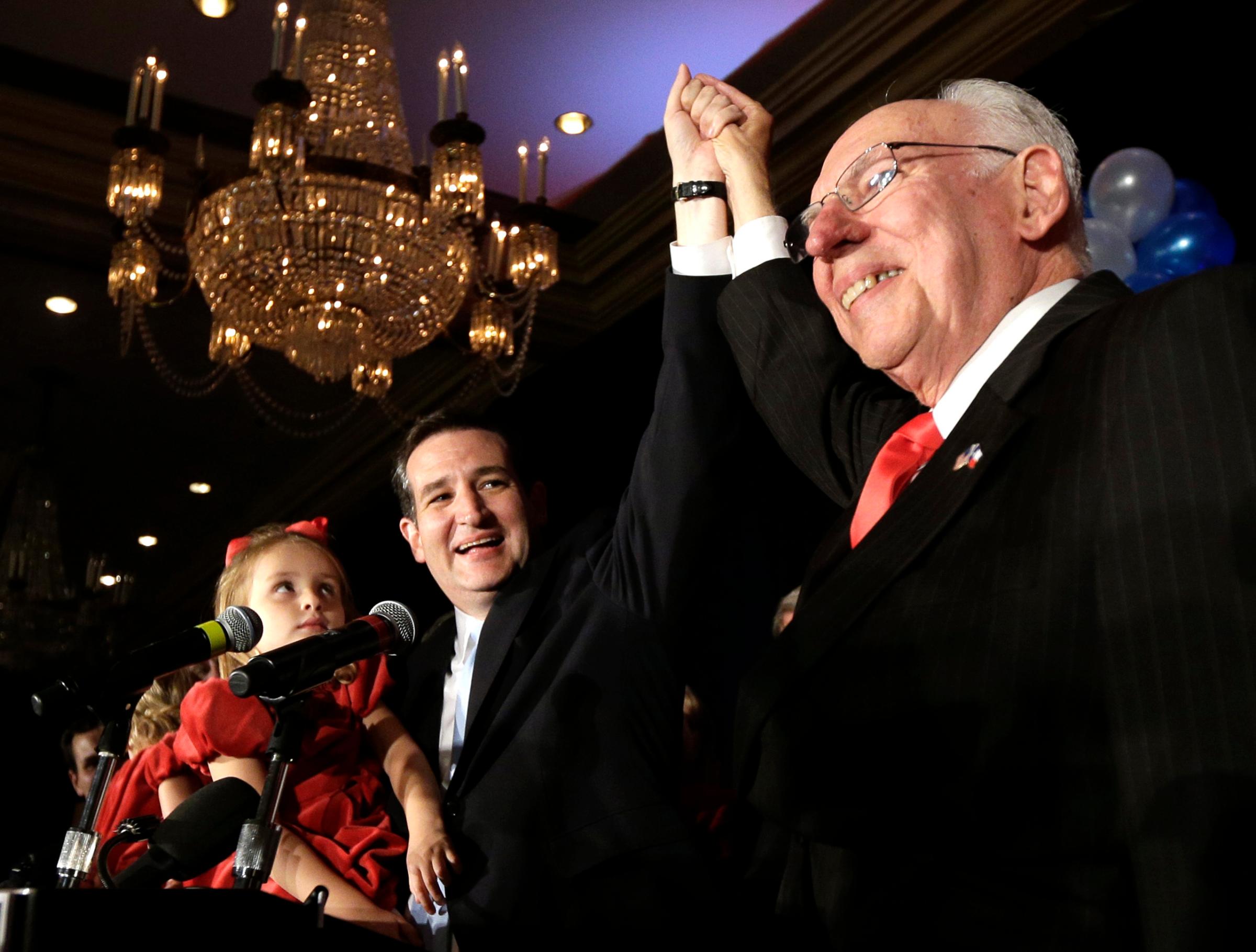
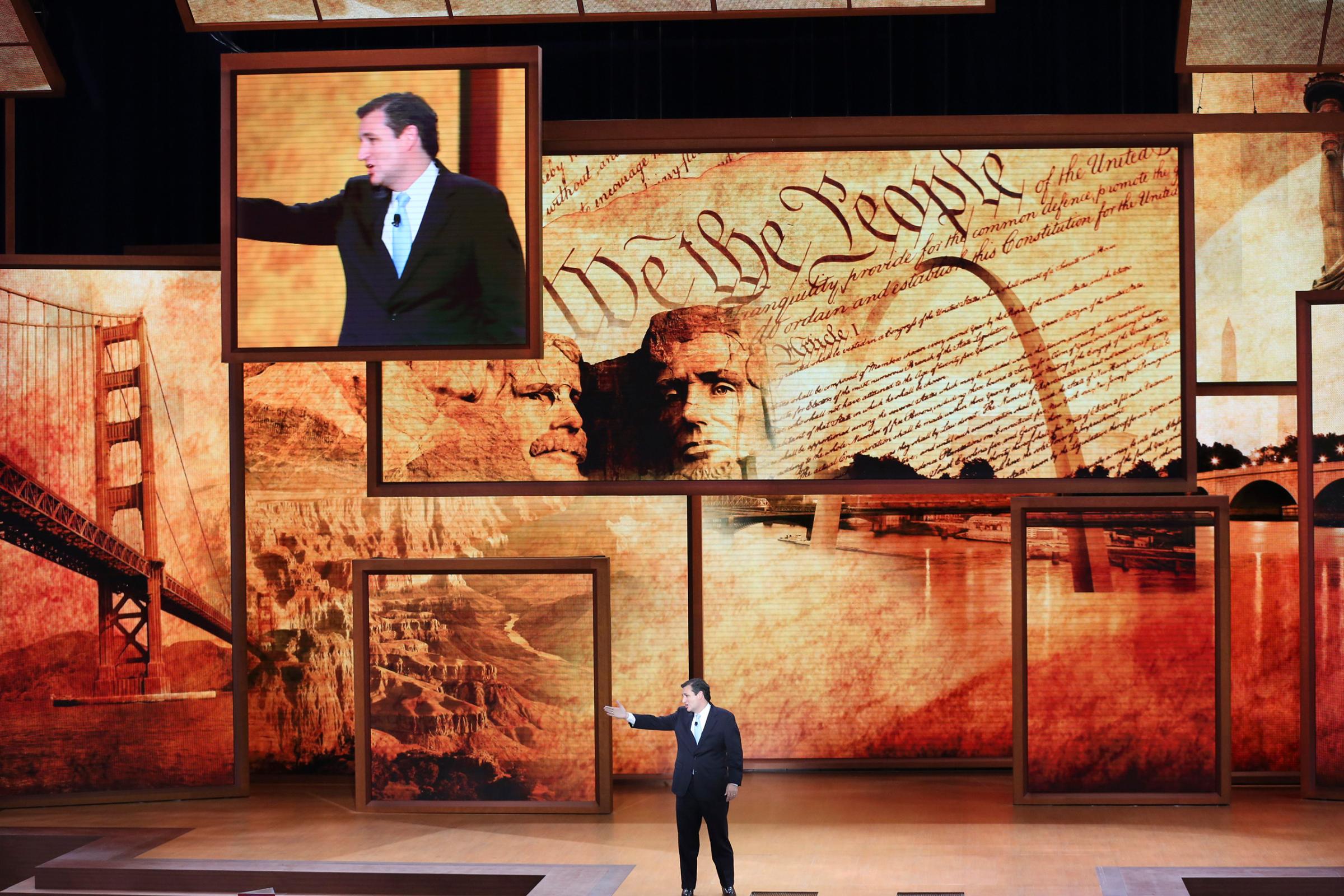
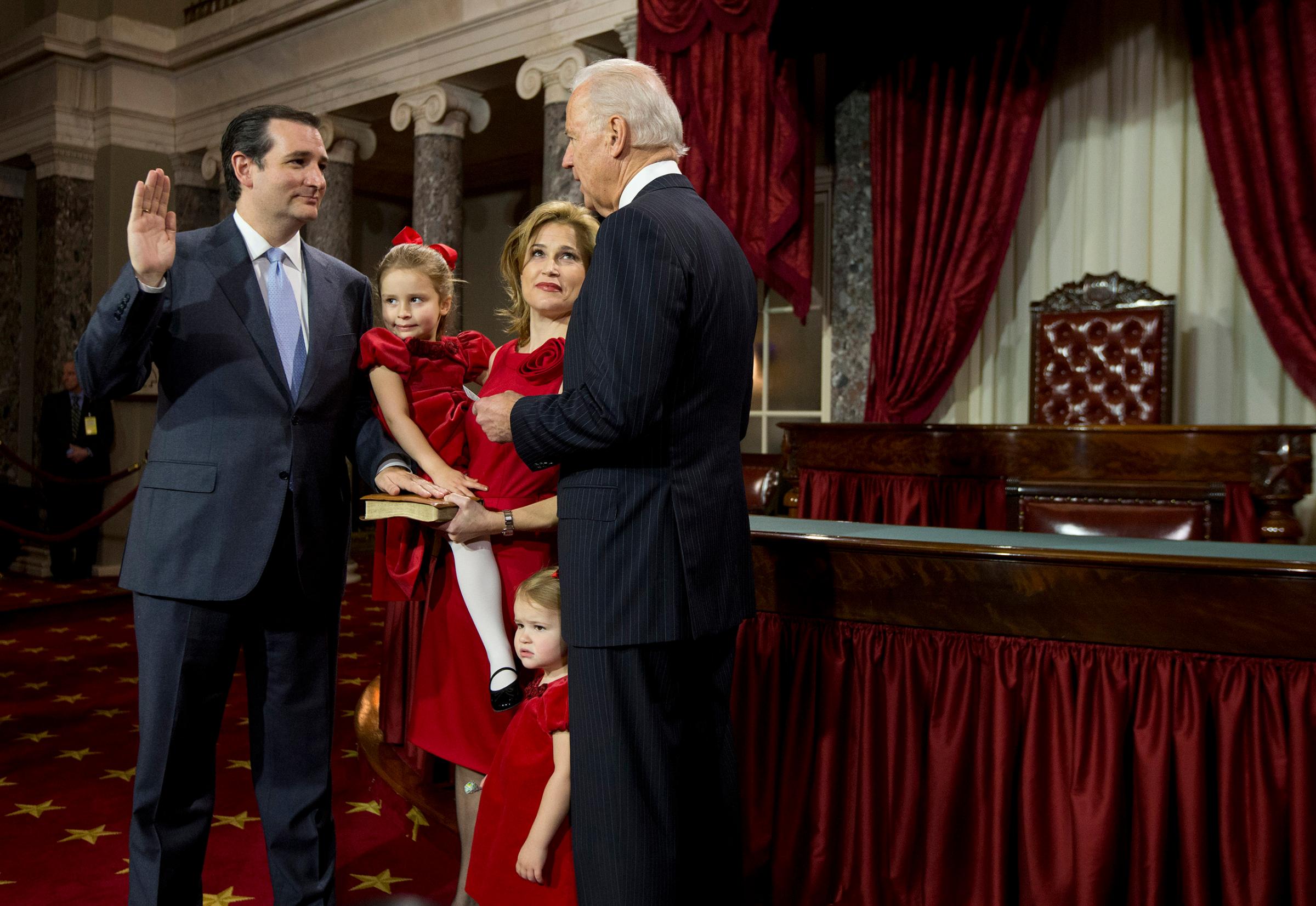
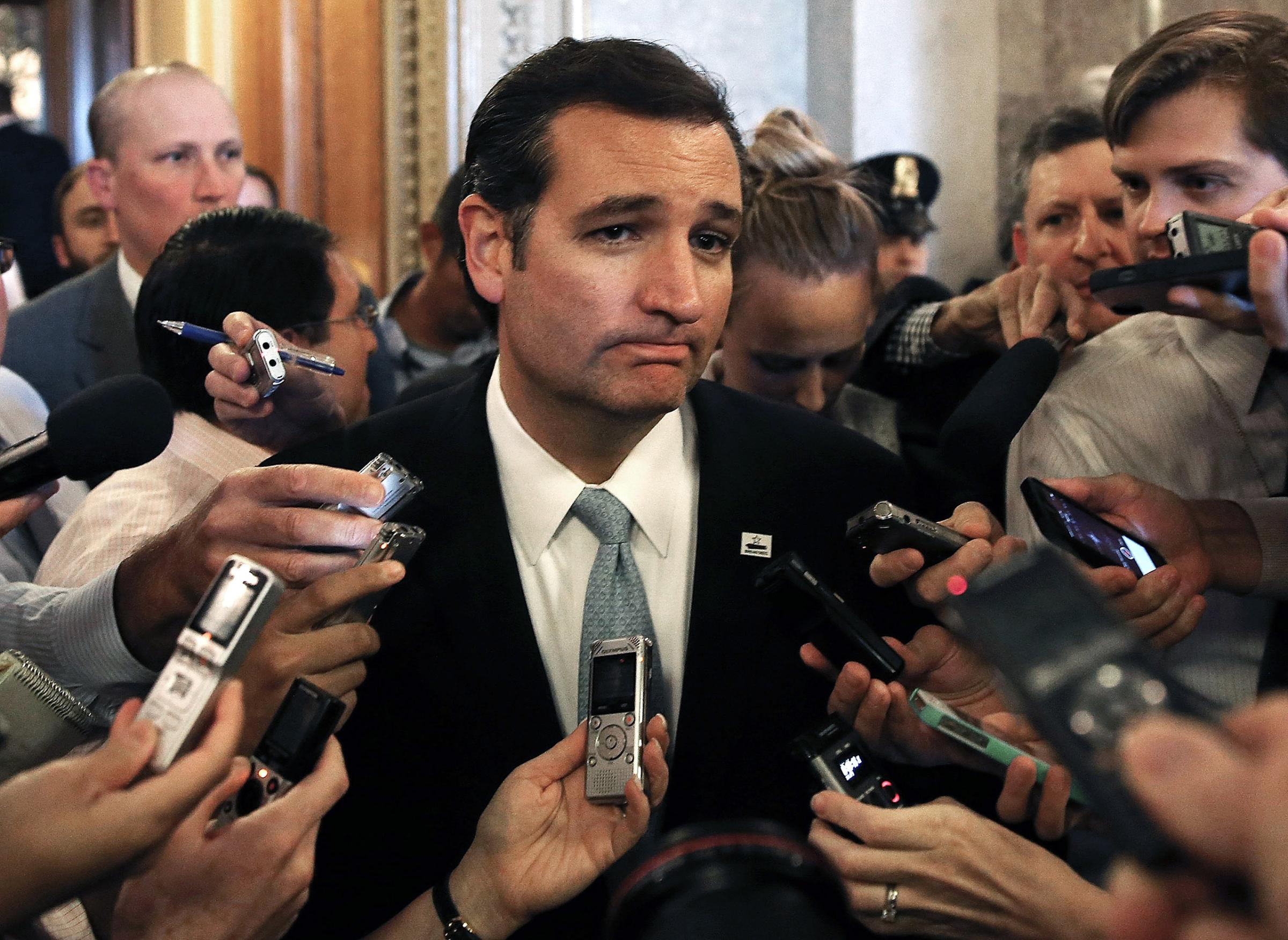
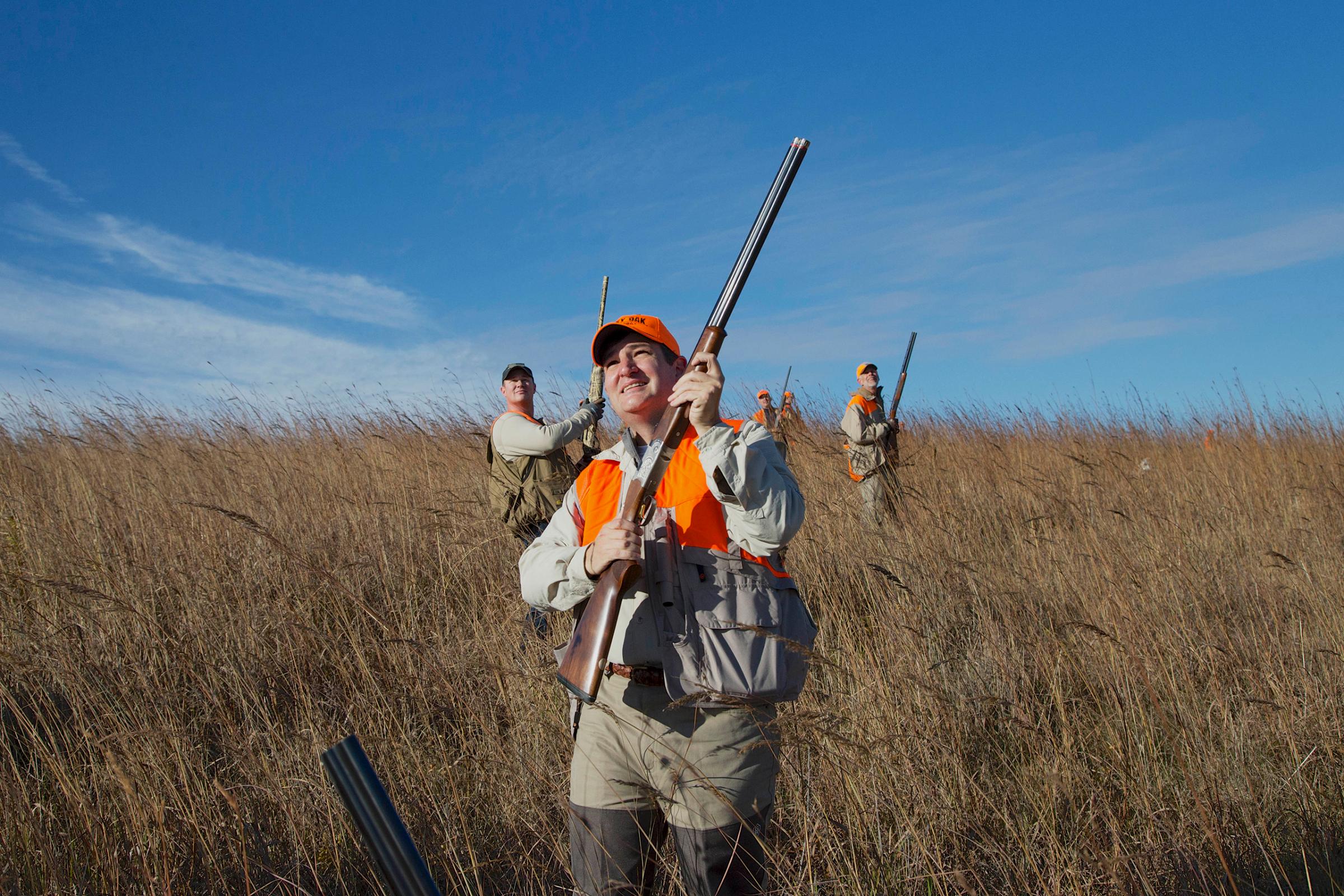
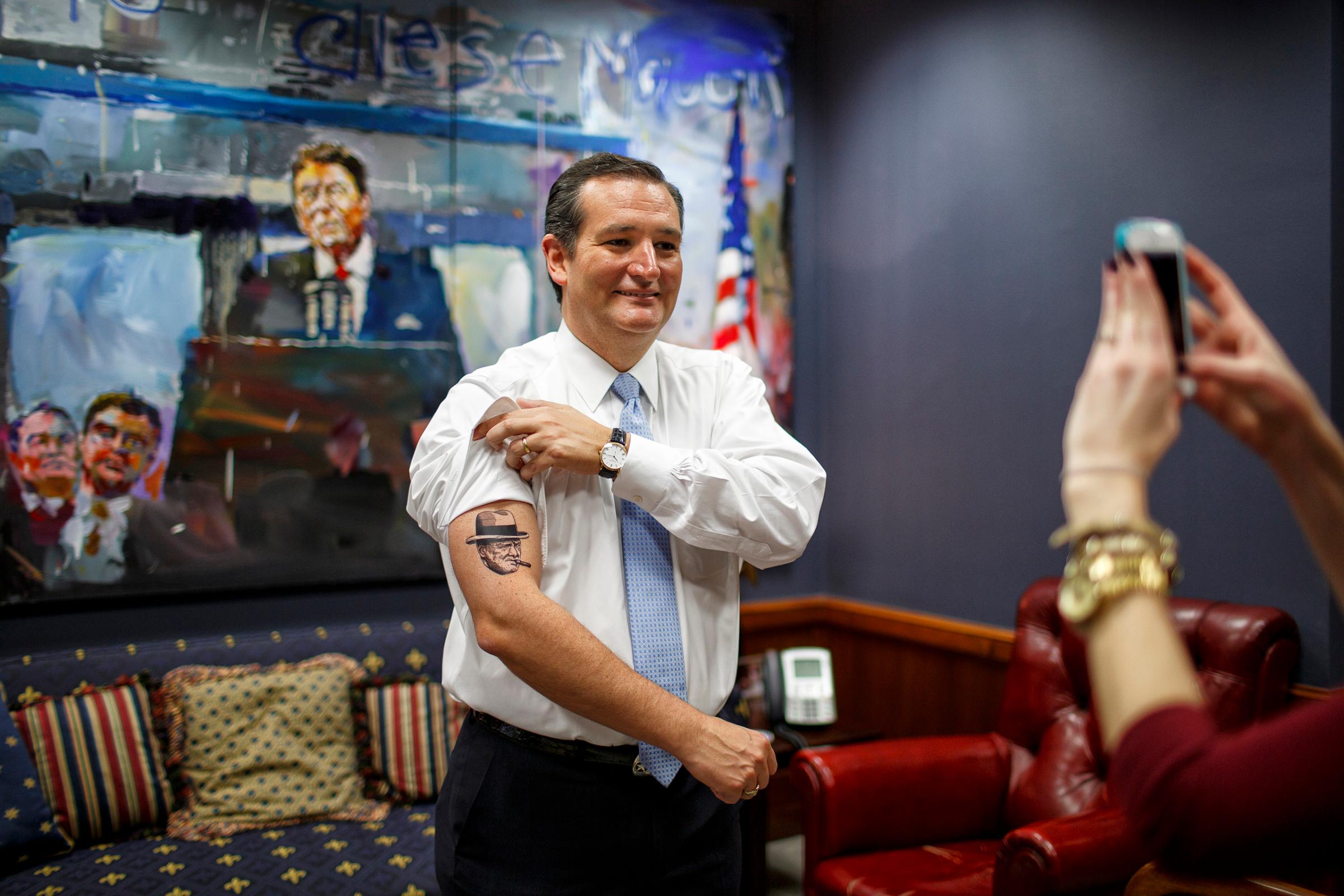
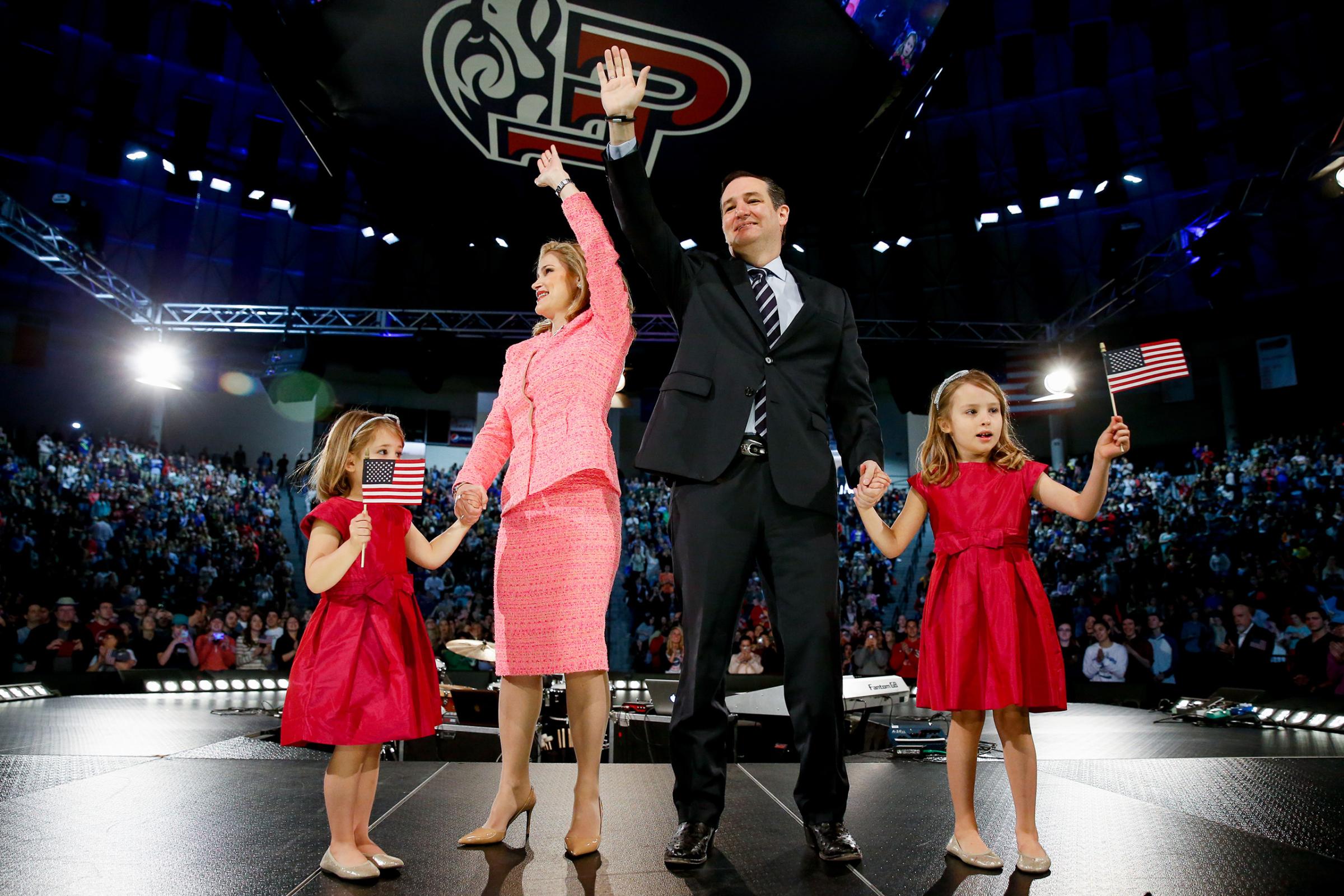
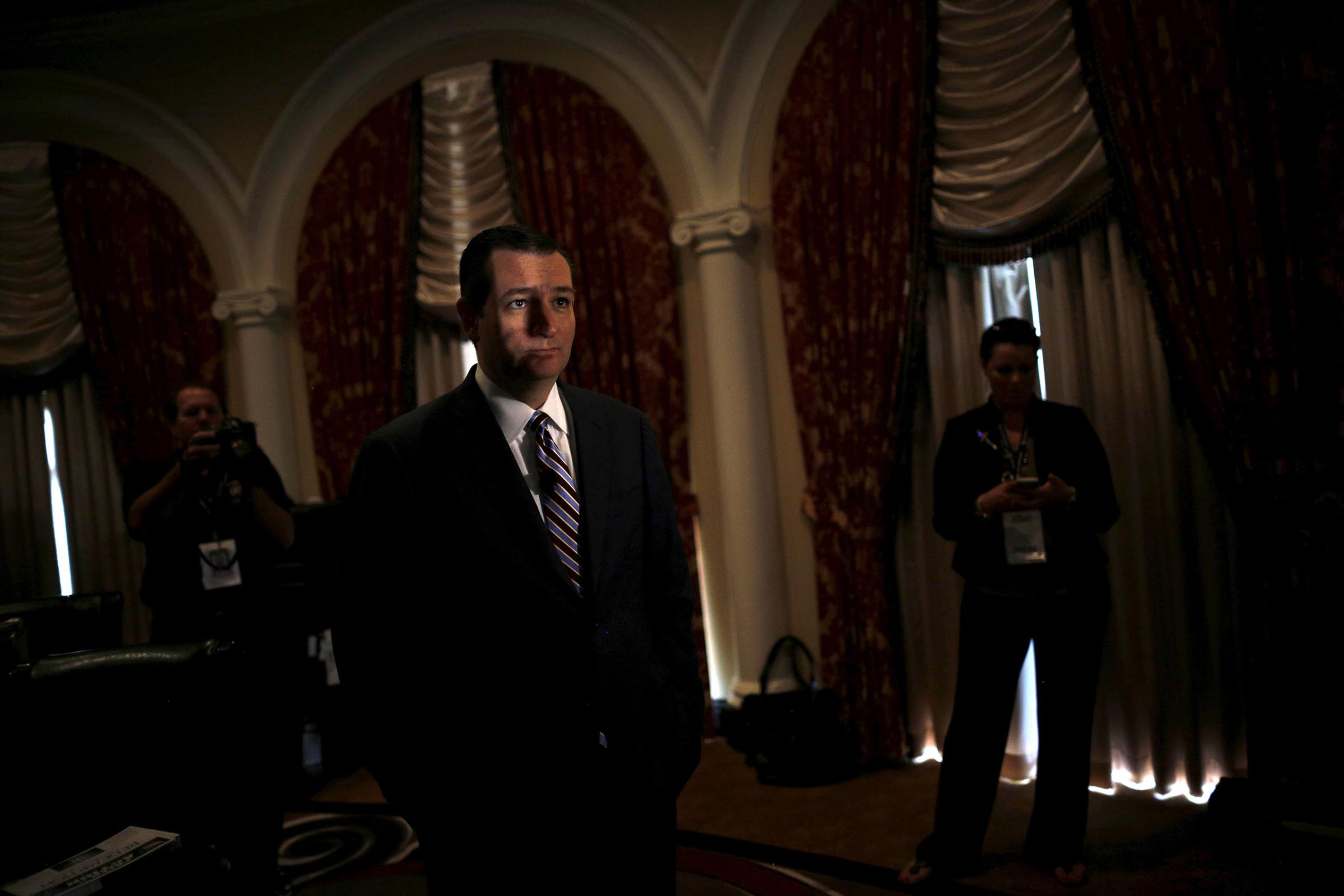
34 minutes. The topic turns to entitlements. Two camps emerge. Christie believes that the American people need to be told their Social Security benefits “have been stolen” by a lying government and are never coming back. Huckabee believes that the American people need to be told they will get all the money they were promised. But Huckabee uses better metaphors. “Today Congress decided to take another $150 billion away from Social Security so they can borrow more money,” he says. “It’s like a 400-lb. man saying, ‘I’m going to go on a diet, but I’m eating a sack of Krispy Kremes before I do.’” Fact check: Krispy Kremes come in sacks in fantasy comic-book nightmares.
38 minutes. Cruz offers to buy Quintanilla some pot brownies and tequila. Don’t ask why. It’s better if you never know.
Read More: Watch Ted Cruz Offer a Moderator a Pot Brownie
45 minutes. After a commercial break and some repetitive arguments about Trump’s corporate bankruptcy history, Carson gets a question about whether the government should better regulate drug companies that impose huge increases on drug prices. Carson agrees the markups are too high, and that government should focus more on average Americans. But then he says he would reduce government regulation, not increase it.
49 minutes. Bush is asked if he stands by his old support for a bipartisan budget deal with $10 in budget cuts for every $1 in tax increases. He declines to answer the question directly twice. Then he says, “You find a Democrat that’s for cutting taxes — cutting spending $10, I’ll give them a warm kiss.” In the language of comic-book nightmares, this counts as a yes.
53 minutes. Rubio gets a tough question about why his personal finances are such a mess. He answers by telling his family’s Horatio Alger tale, from a barkeep dad to a U.S. Senator son. “But I’m not worried about my finances,” he says, “I’m worried about the finances of everyday Americans.” It all seems so effortless.
58 minutes. Cruz gets a question about what he will do to help women get equal pay in America. His answer is almost Rubio-level good. “The Democrats’ answer to everything is more government control over wages,” he says, “and more empowering trial lawyers to file lawsuits.” Then he tells the story of all the strong, successful women in his family. And he blames Obama for the economic pain that fell disproportionately on women as a result of the 2008 financial crises.
60 minutes. Quintanilla asks Carson a loaded question about how he could have served on the Costco board, which treated gay employees well, while also opposing gay marriage, a position both President Obama and Hillary Clinton held just a few years ago. Carson tells Quintanilla not to “automatically assume that because you believe that marriage is between one man and one woman that you are a homophobe.” This is a solid point, unless Quintanilla wants to argue that Obama and Clinton were homophobes in 2008.
69 minutes. Trump is asked about his criticism of Facebook’s Mark Zuckerberg. “I was not at all critical of him,” says Trump. CNBC’s Becky Quick follows up. “You have talked a little bit about Marco Rubio,” she says. “I think you called him Mark Zuckerberg’s personal Senator.” “I have never said that,” Trump shoots back. This is false. Trump’s position paper on immigration, published on his website, reads “Mark Zuckerberg’s personal Senator, Marco Rubio, has a bill to triple H-1Bs that would decimate women and minorities.” Perhaps the website exists outside of the fantasy comic-book nightmare. Wake up. Please.
76 minutes. After some talk of auditing the Federal Reserve, and a Cruz play to bring back the gold standard, Huckabee pulls out another metaphorical gem. “If you saw that blimp that got cut loose from Maryland today, it’s a perfect example of government,” he says. “I mean, what we had was something the government made — basically a bag of gas — that cut loose, destroyed everything in its path, left thousands of people powerless, but they couldn’t get rid of it because we had too much money invested in it, so we had to keep it.” It’s not a perfect metaphor, but it’s about the blimp. So points for that.
78 minutes. Rubio and Harwood get into a confusing discussion about the Rubio tax plan. They disagree over which number is more important. While the tax plan would increase after tax incomes for low-income people by a greater percentage than high-income people, more of the total tax benefits would go to high-income people than low-income people, because they have more money to be taxed.
83 minutes. After Cruz’s generous offer, Quintanilla wants to talk about marijuana. But he asks a question of Kasich, who is not interested. He says drugs are bad, and then talks about how he would address income inequality.
89 minutes. After another break, Quick has found the Trump website, so she tries again to combine the comic nightmare with reality. Trump refuses to acknowledge he was wrong, when he said he never said what his website said. “As far as Mark is concerned, as far as the visas are concerned, if we need people, it’s fine,” Trump says. “They have to come into this country legally.” Kapow. Shazam.
91 minutes. Talk of guns, which revolves around when Trump carries his gun and when he does not. He won’t tell. Huckabee is then baited to attack Trump. He turns on the charm instead. “I love Donald Trump,” the governor says. “He is a good man. I’m wearing a Trump tie tonight. Get over that one, O.K.?” Bush tries to score a hit. “Is it made in China or Mexico?” he asks. “I have no idea,” says Huckabee.
99 minutes. Bush gets a question about regulating fantasy sports. He finally gets a chance to turn on his charm. “I’m 7 and 0 in my fantasy league,” Bush says, before name-dropping New Hampshire’s second favorite player. “Gronkowski is still going strong.” He goes on to say he thinks there needs to be more regulation of online sports betting. But then Christie ends the moment. “Wait a second,” he says. “We have $19 trillion in debt. We have people out of work. We have ISIS and al-Qaeda attacking us. And we’re talking about fantasy football? Can we stop?” The crowd cheers again. Poor Bush.
108 minutes. After another break, the thin air can be felt by the audience watching this thing at home. Trump says again that the economy will be great if he is President because he is great. Huckabee makes a plea to deal with chronic health conditions to tackle Medicare spending. Carson makes his pitch for health savings account alternatives. But really this thing is over.
116 minutes. The closing statements. Basically what you would expect. Most of the candidates try to show that they can tap into the rage of voters. Carson says, “I just want to thank all my colleagues for being civil and not falling for the traps.” He means the questions from CNBC. Trump says, “Our country doesn’t win anymore.” Rubio tells his parents’ story once again. Bush tries to sound optimistic, but has to stop to cough midway through. And Kasich says, “God bless America.” Pot brownies and tequila for everyone.
Read Next: How Jeb Bush Lost the Debate
LIFE's Best Convention Photos: The GOP
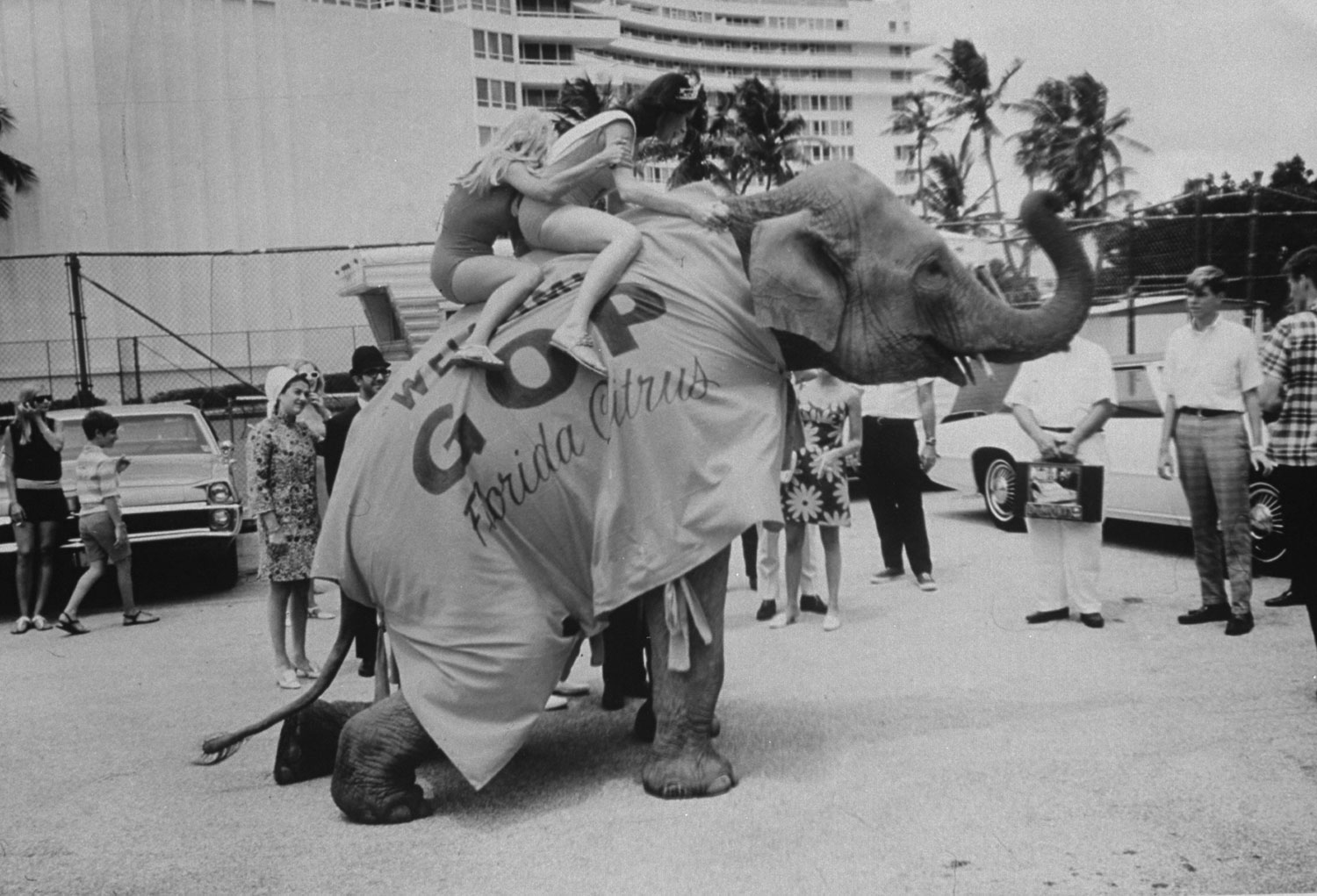
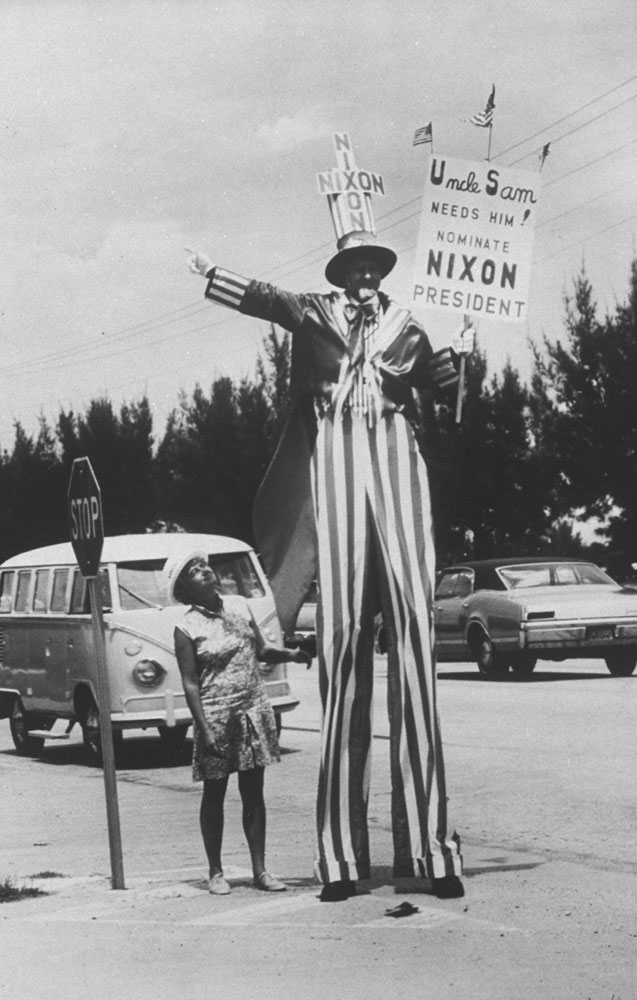
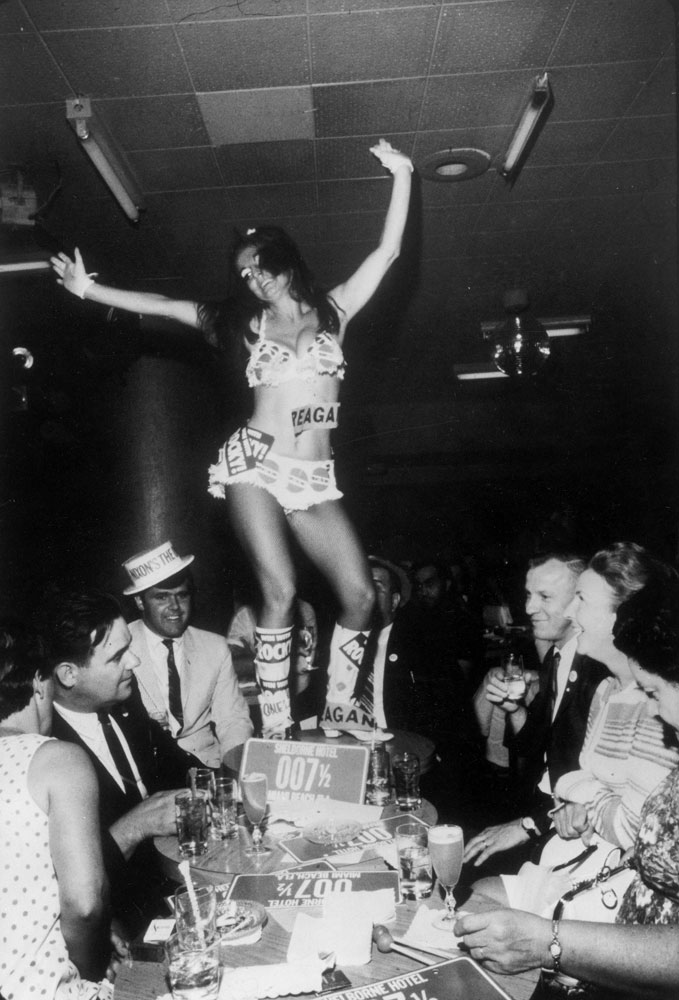
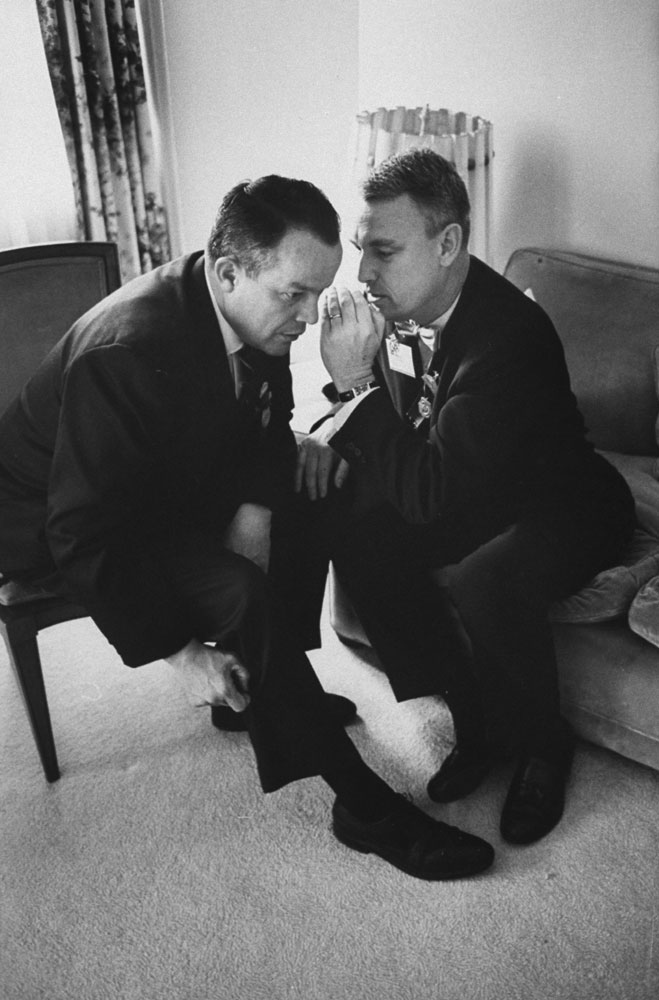
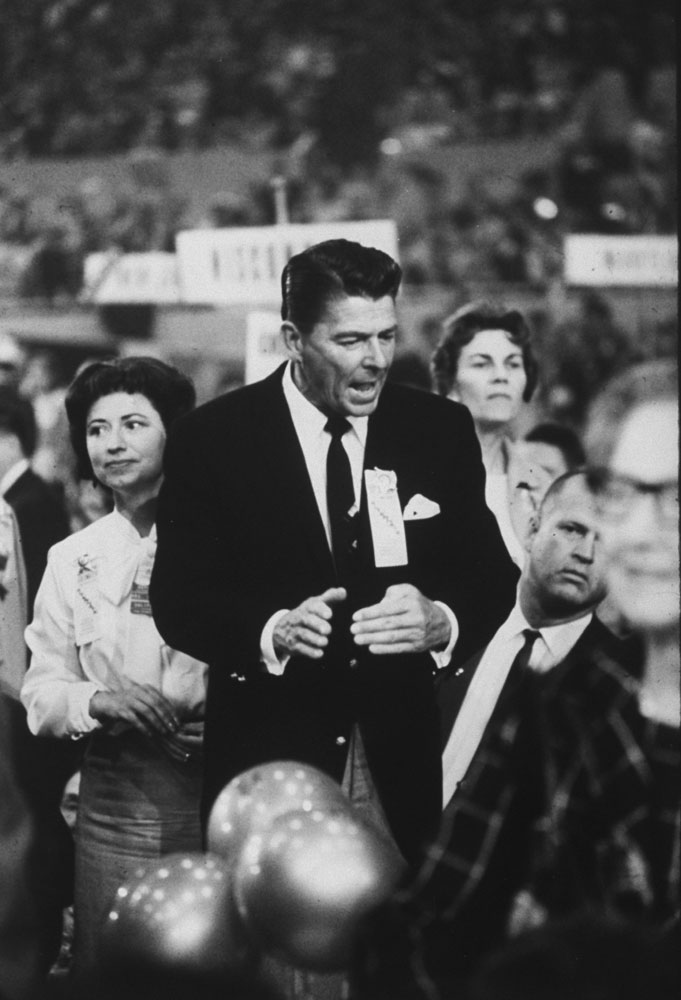
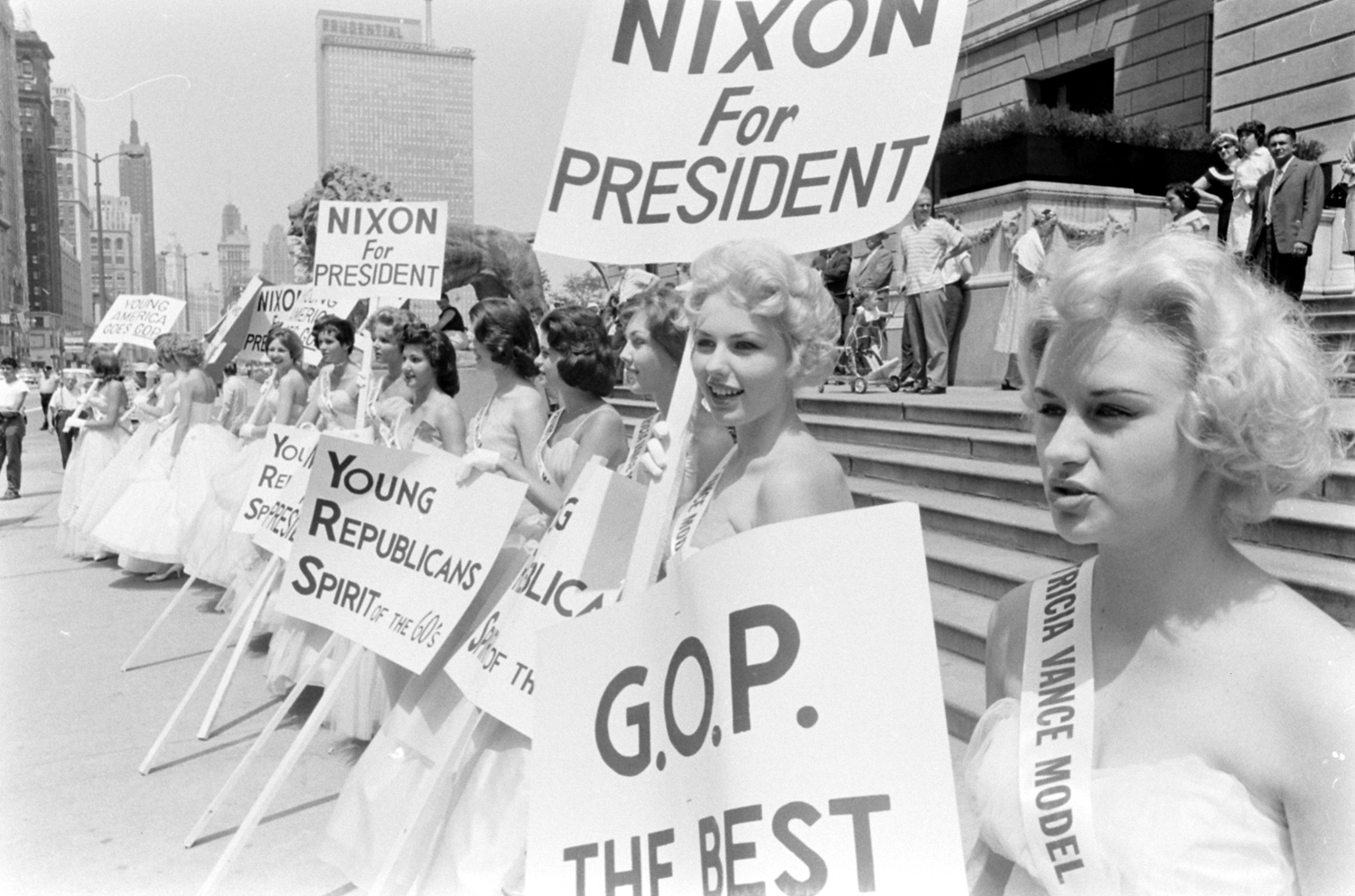
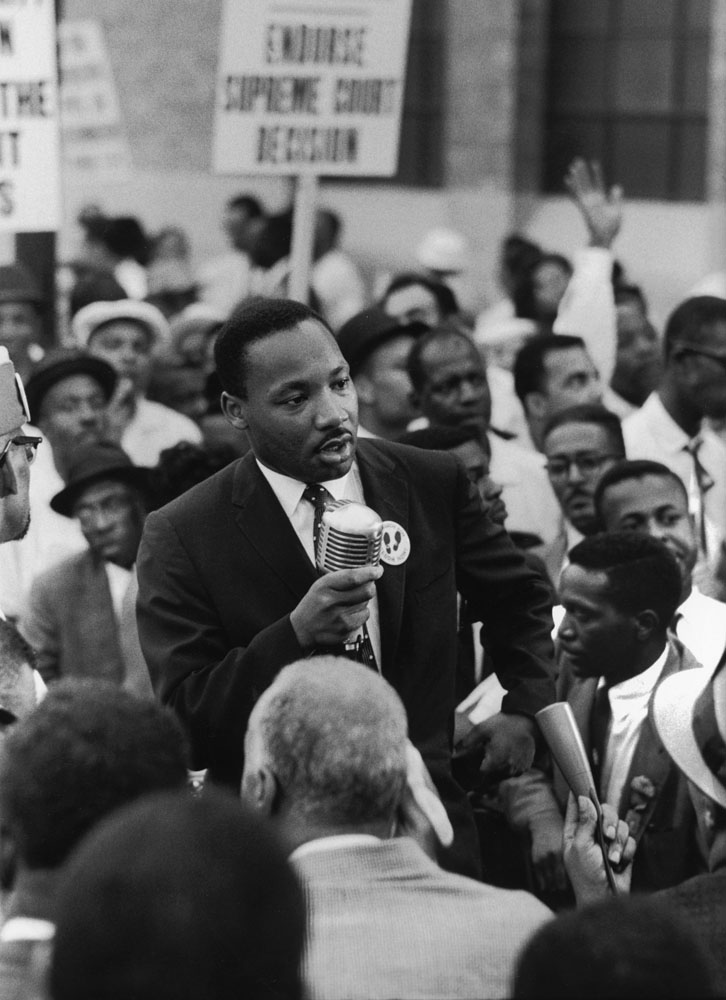
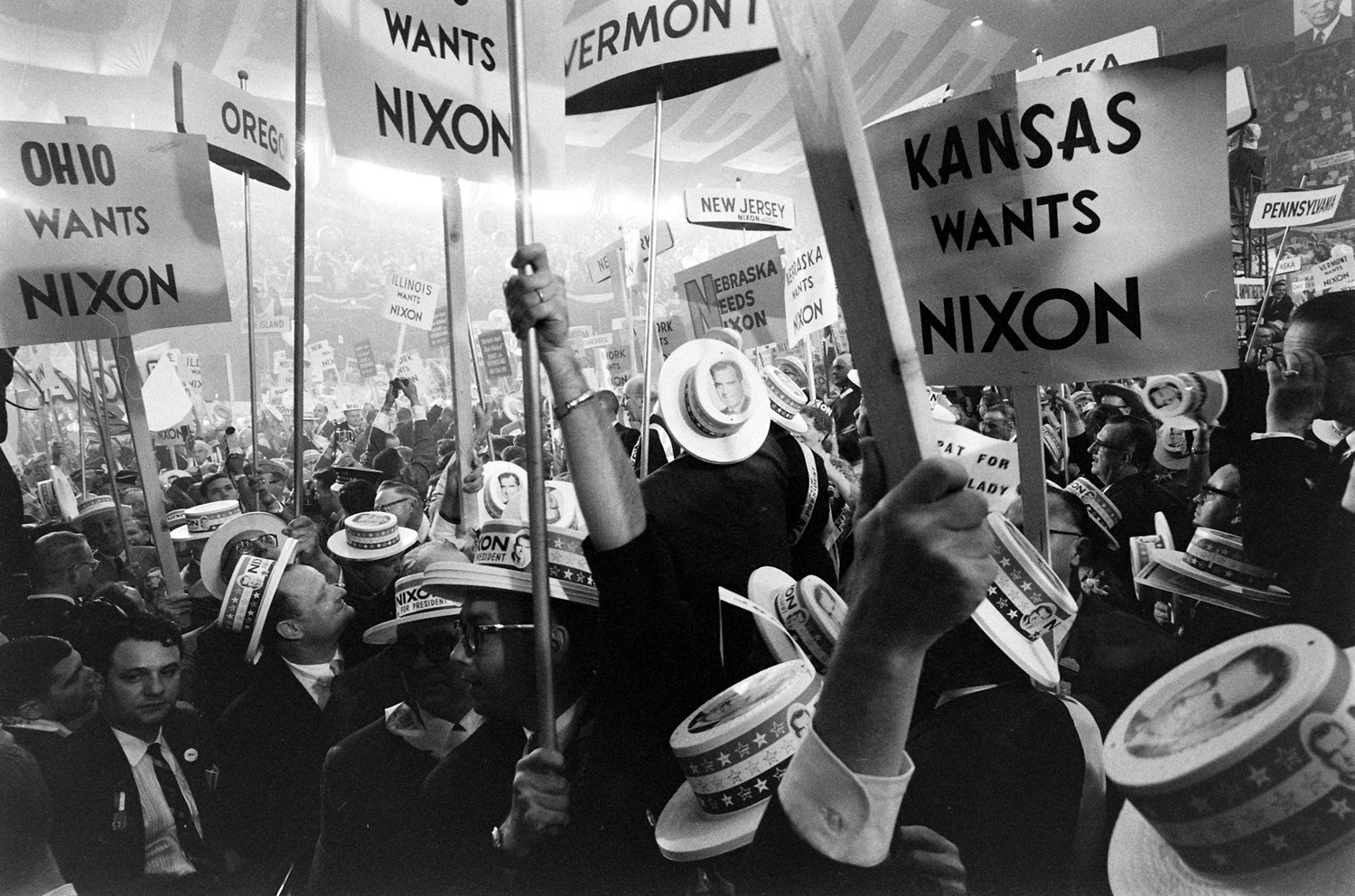
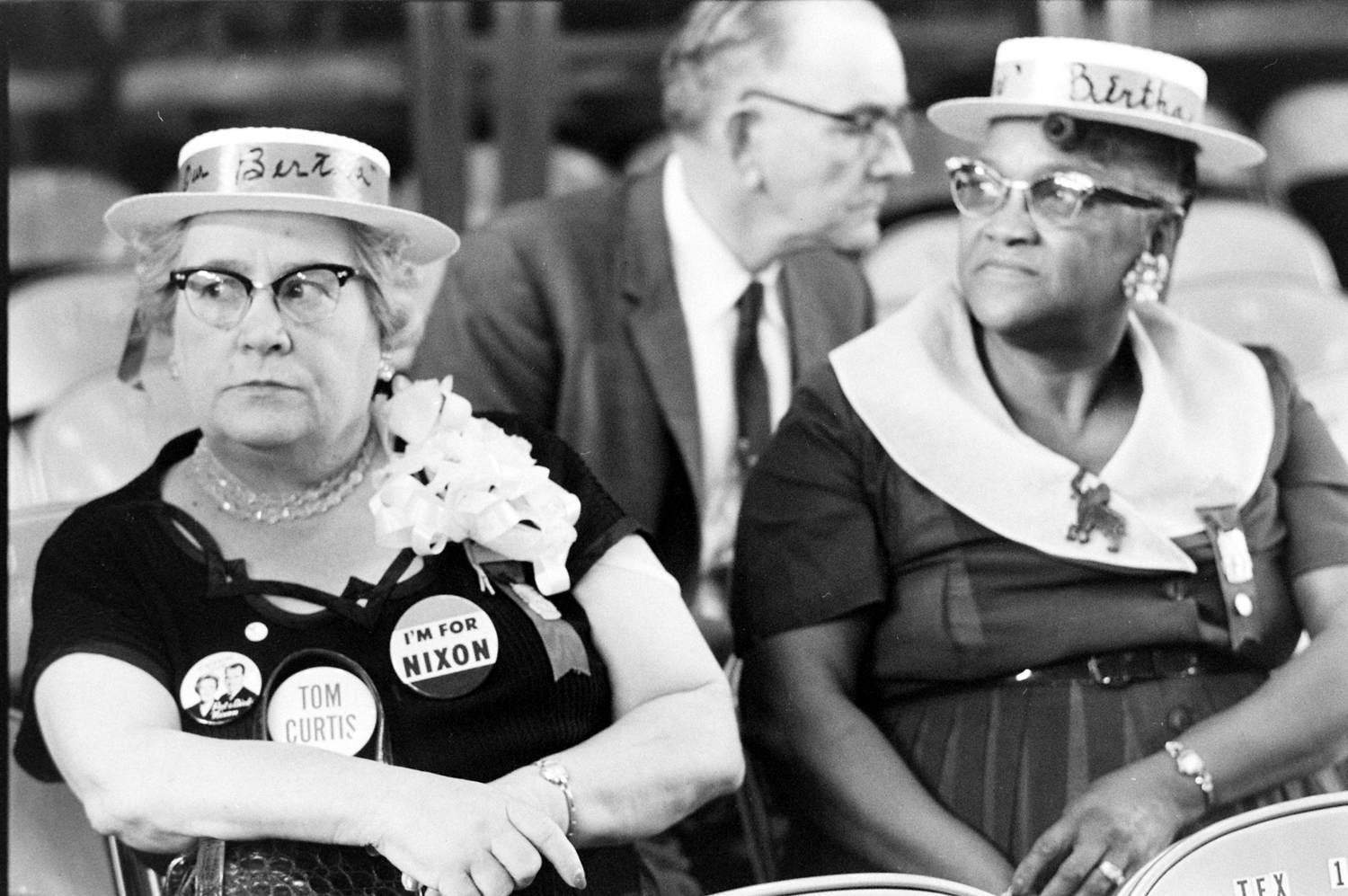
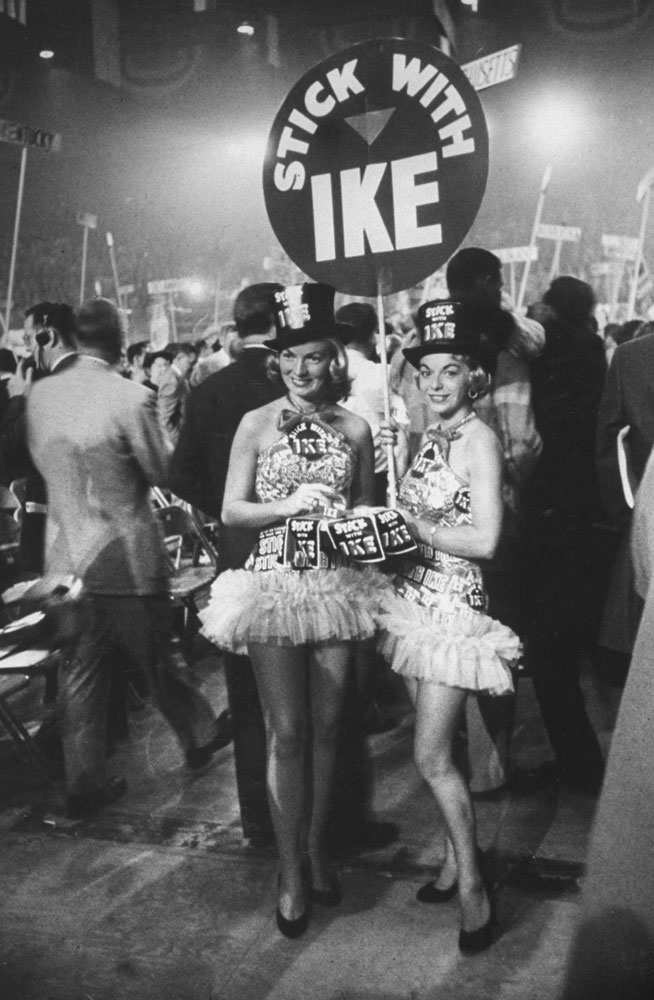
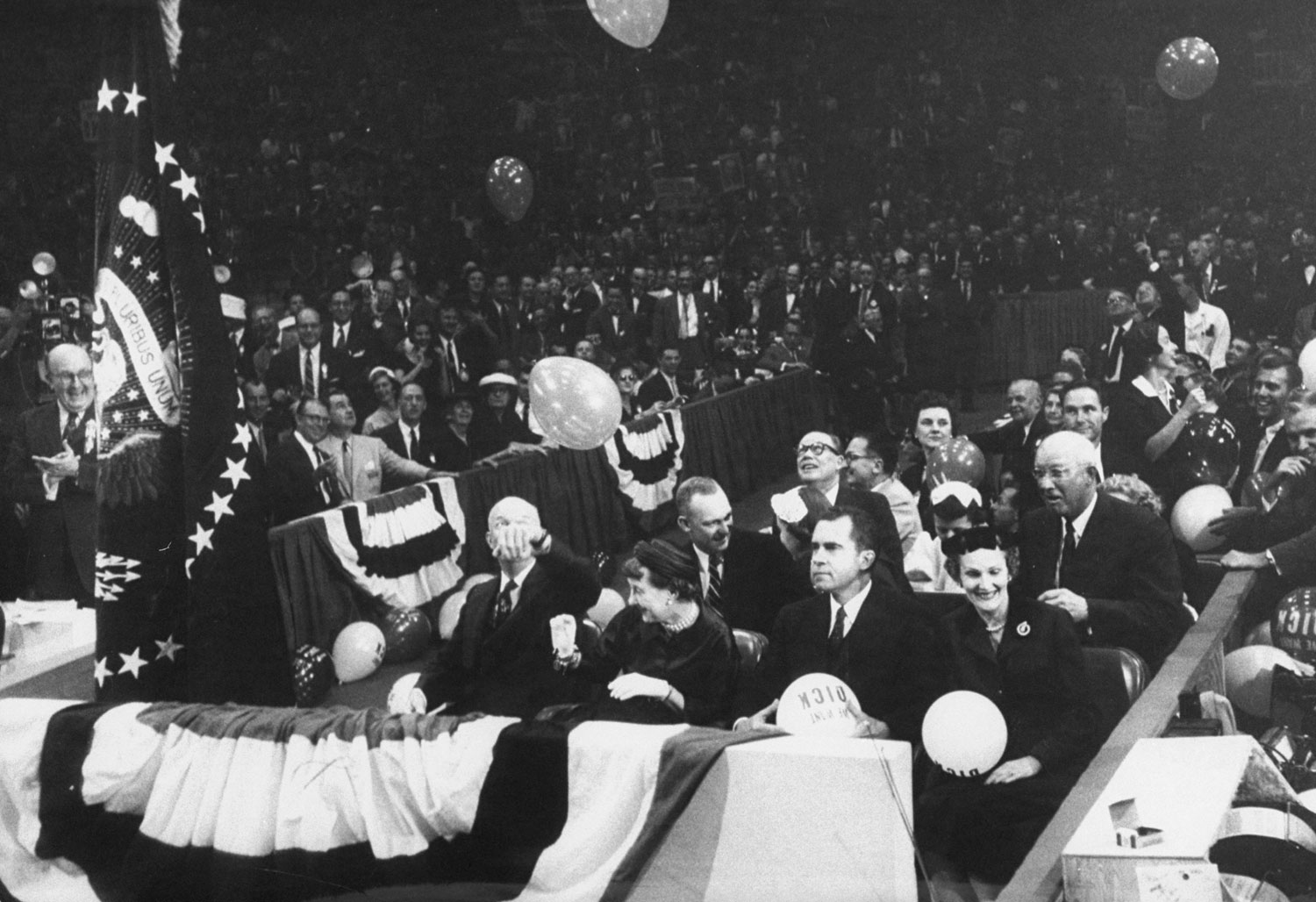
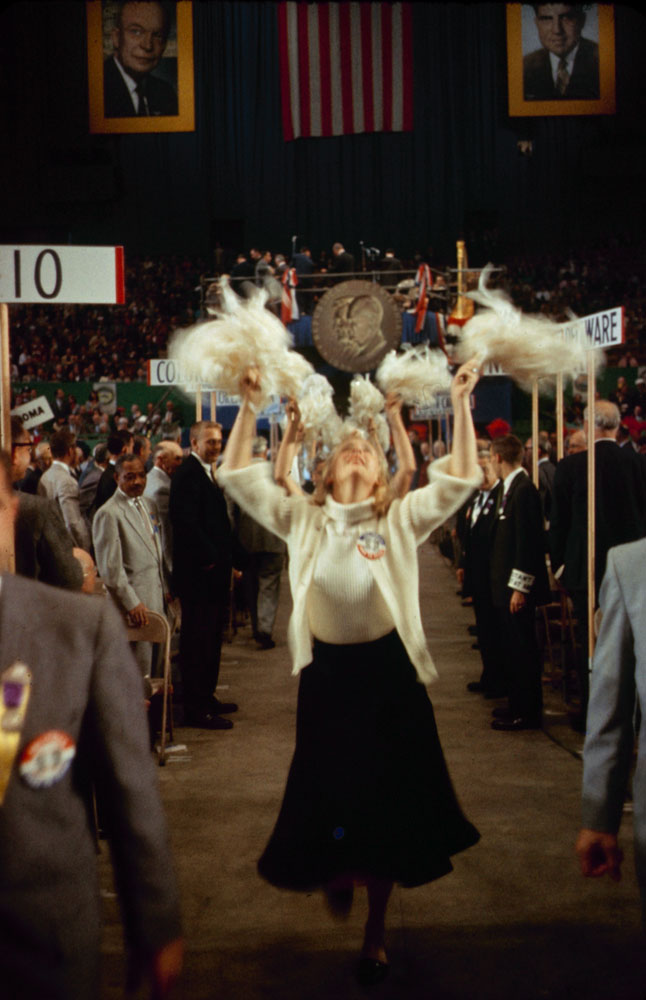
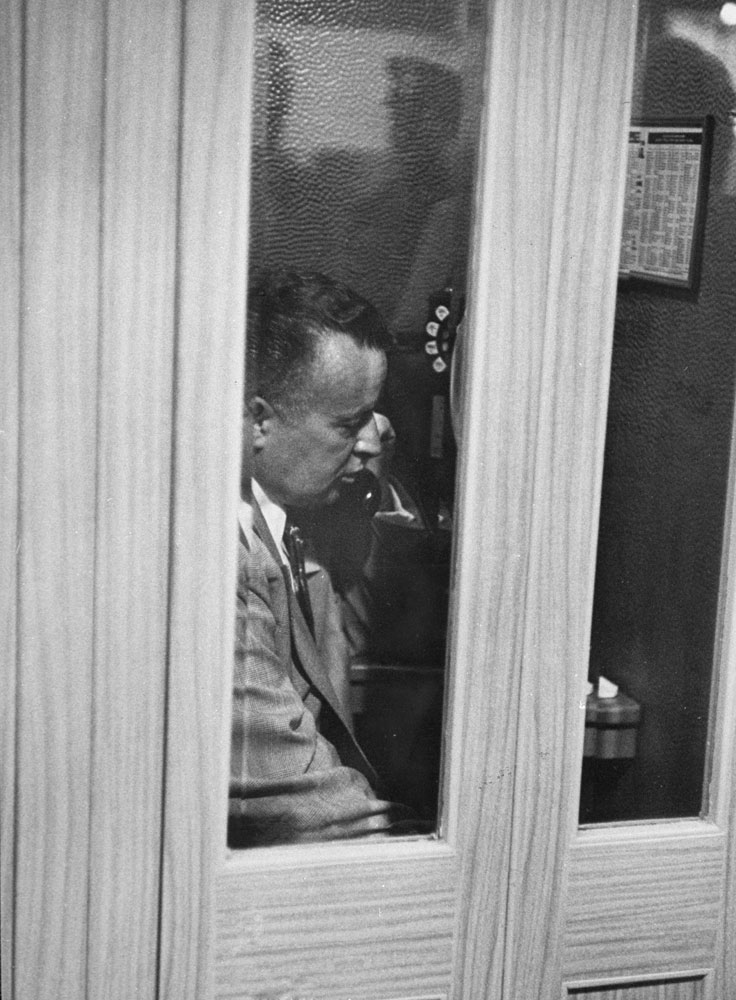
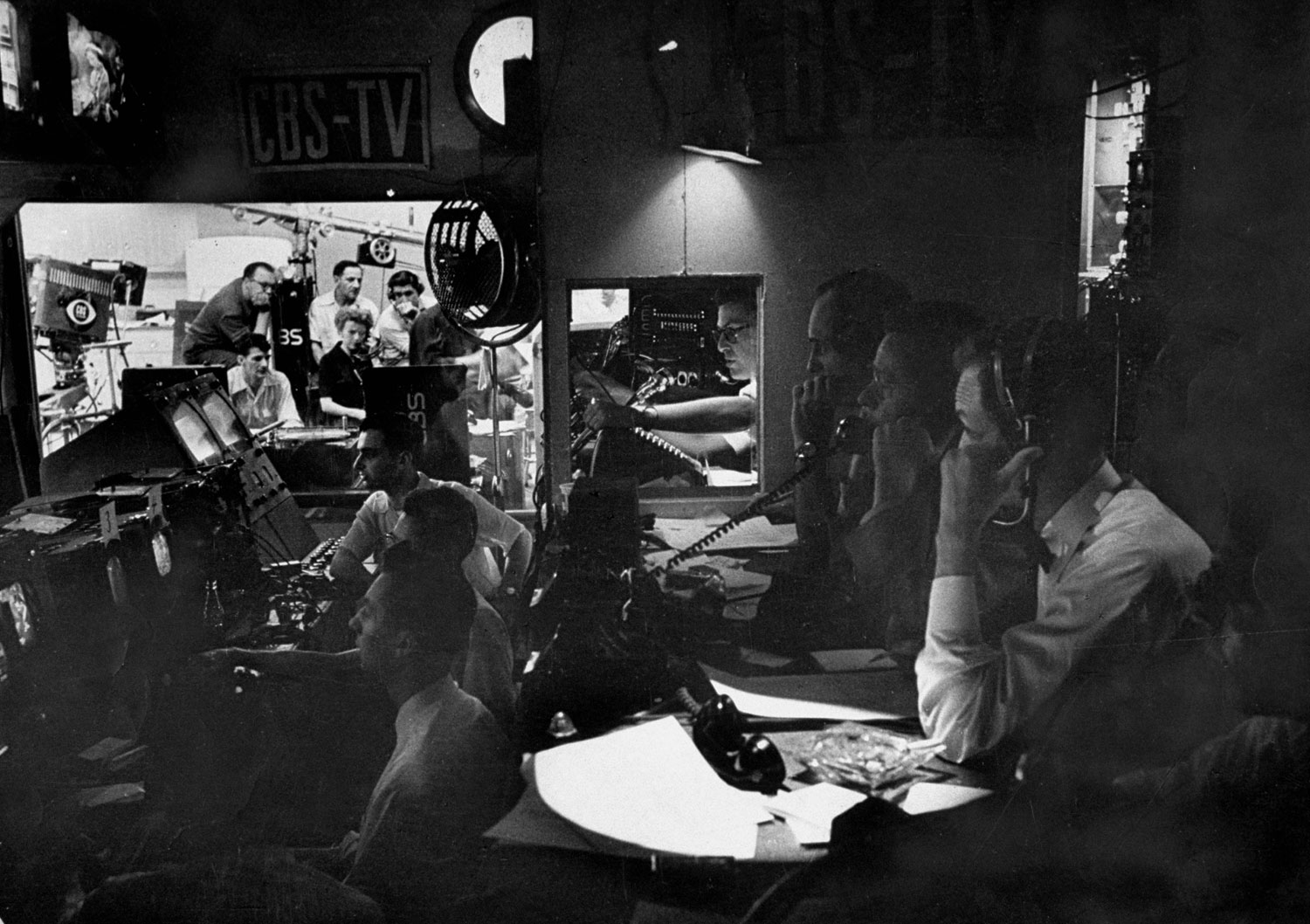
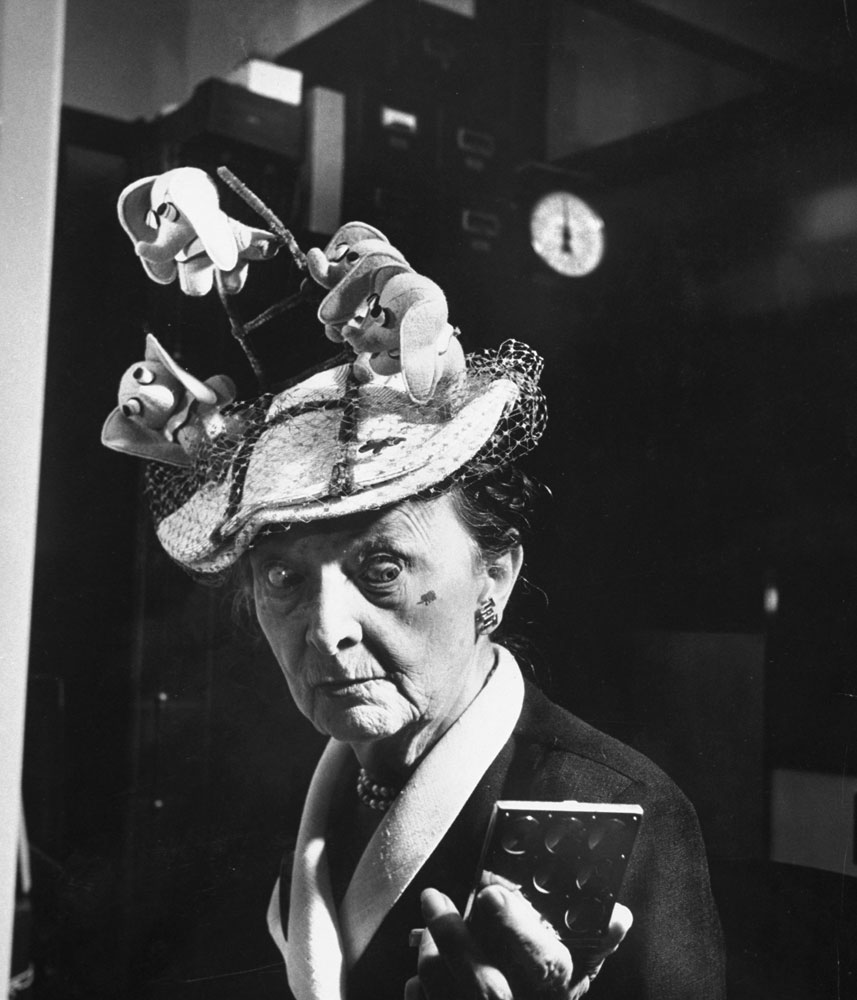
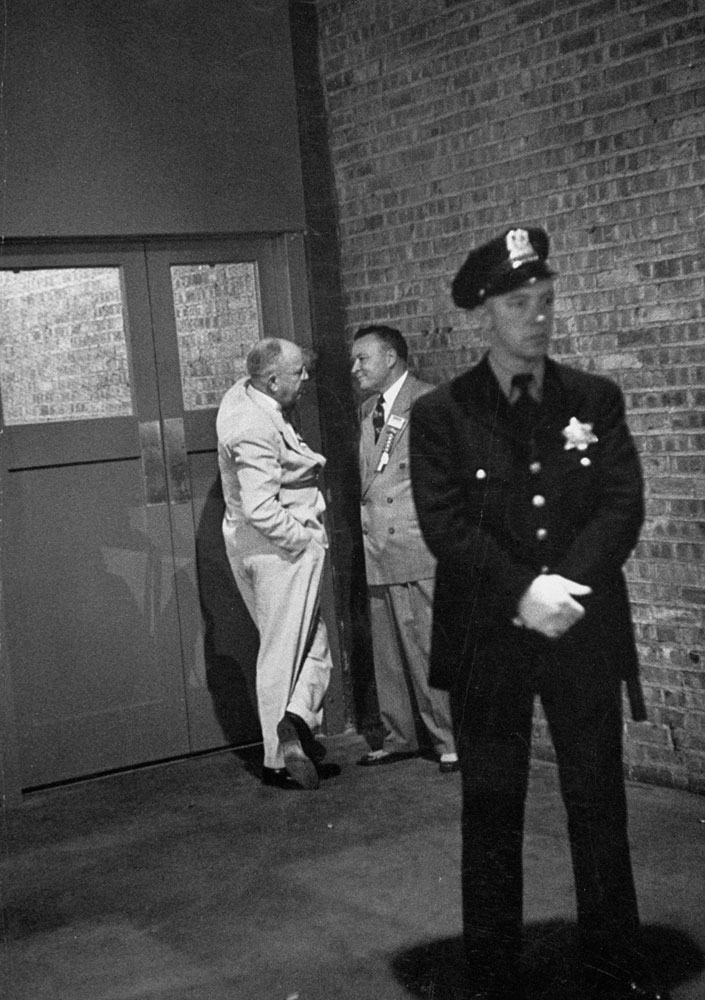
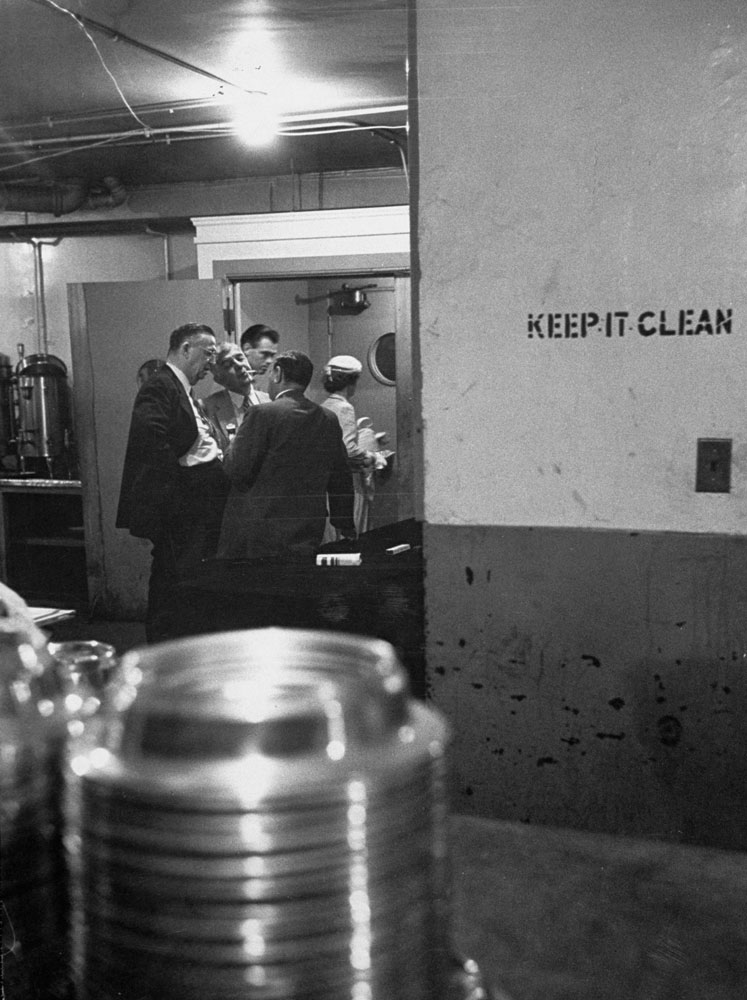
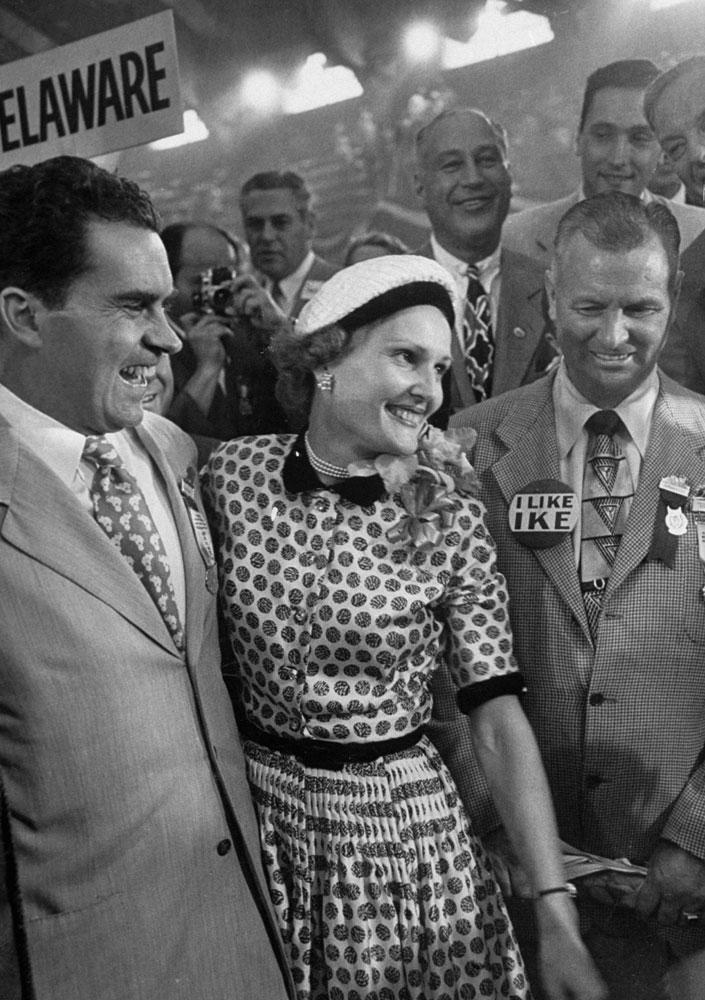
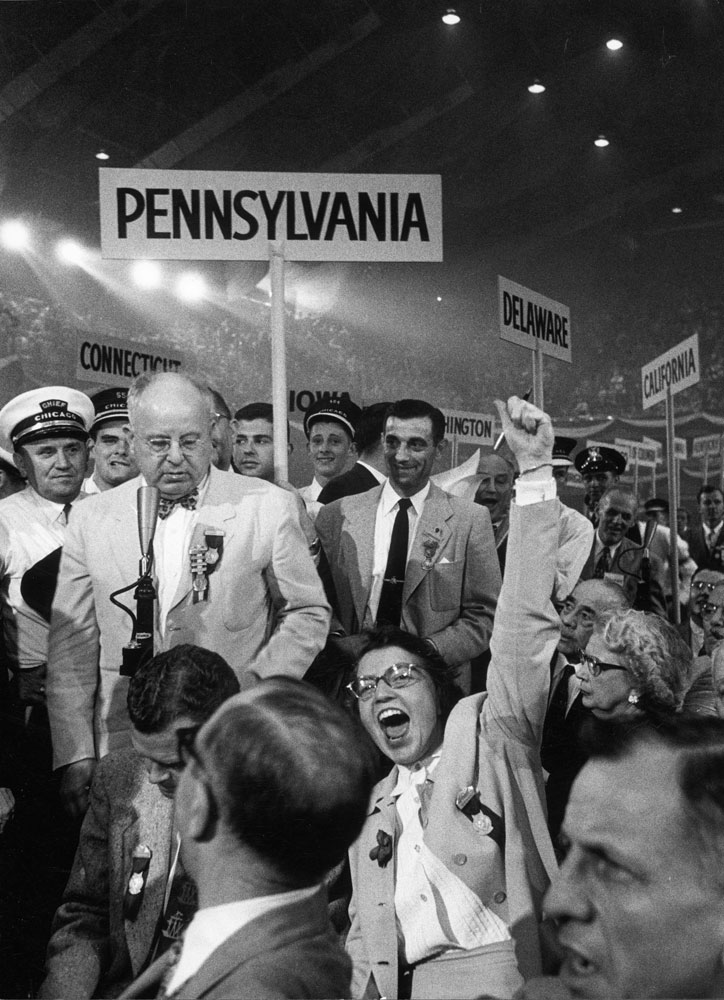
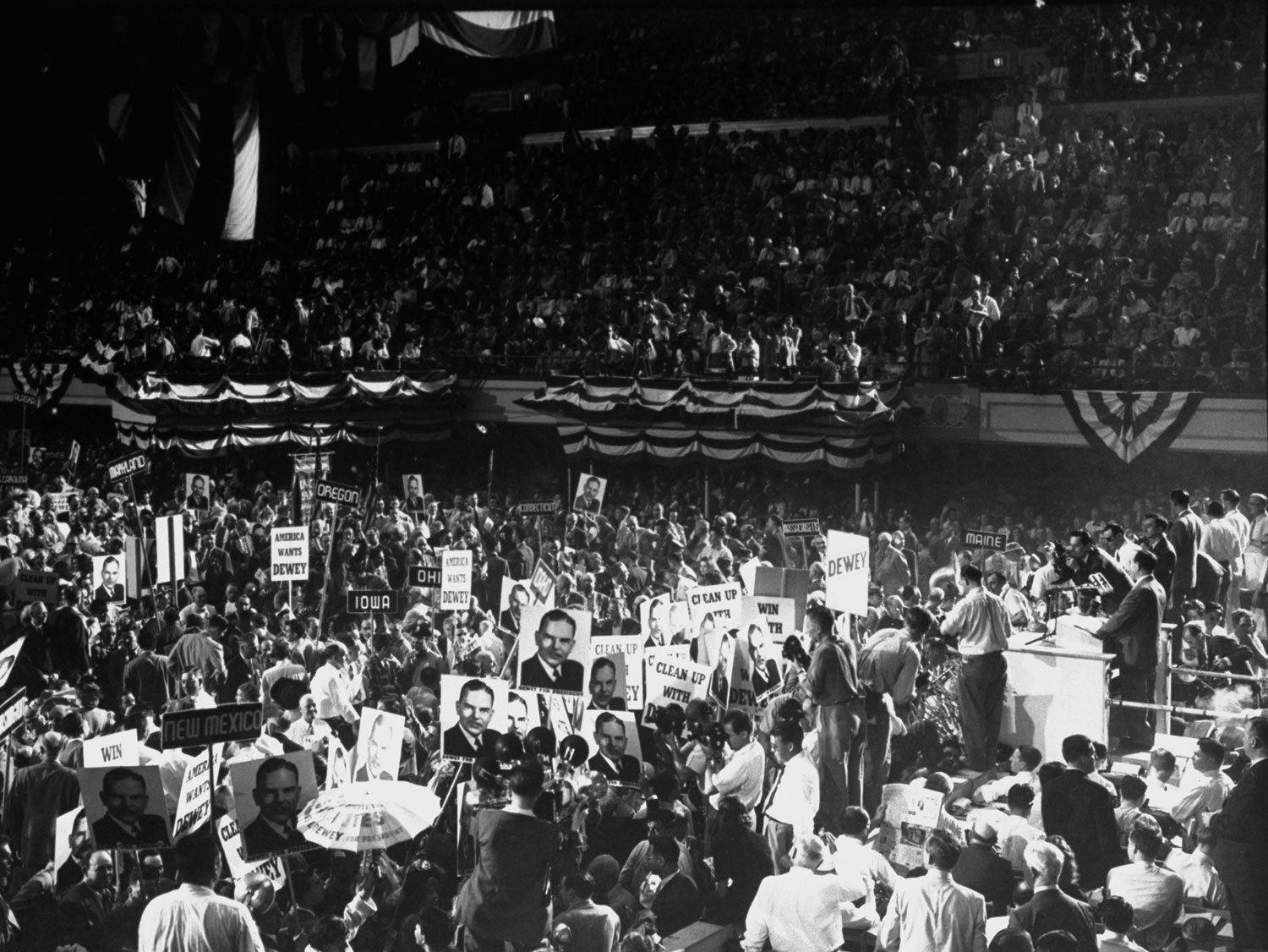
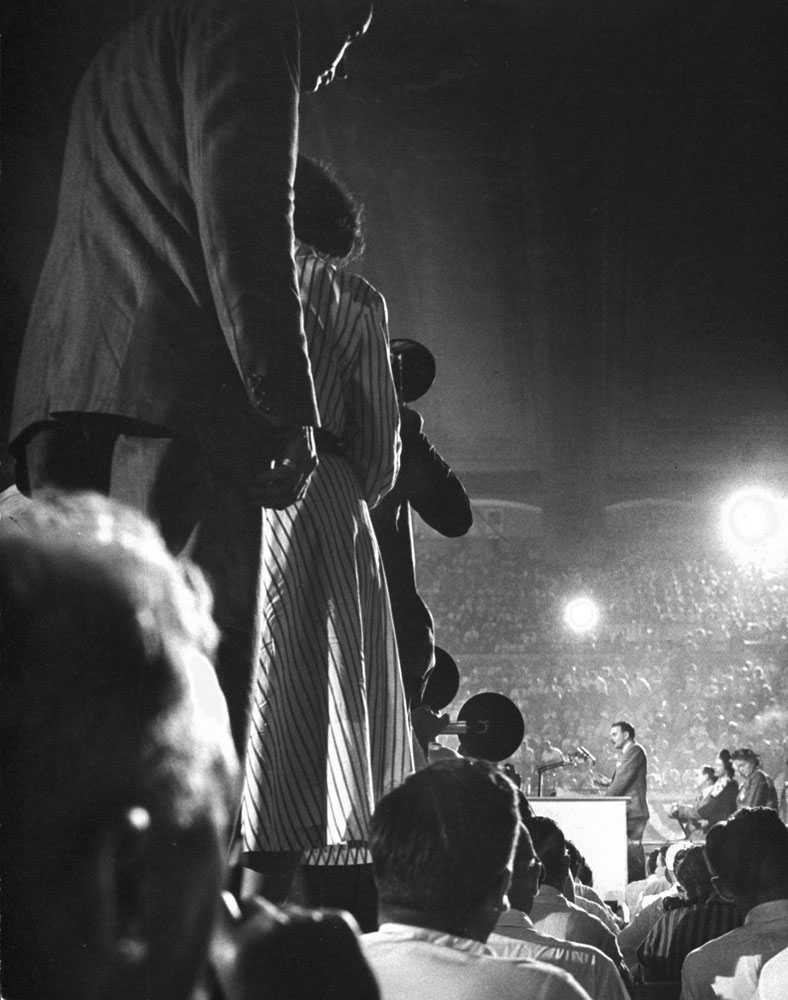
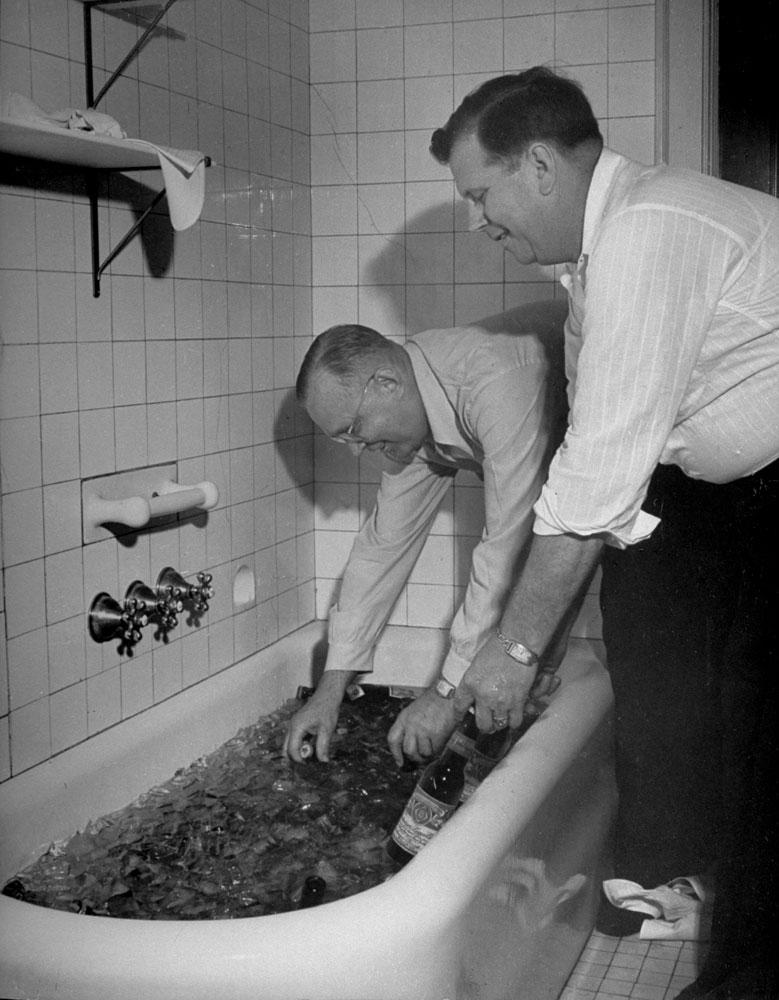
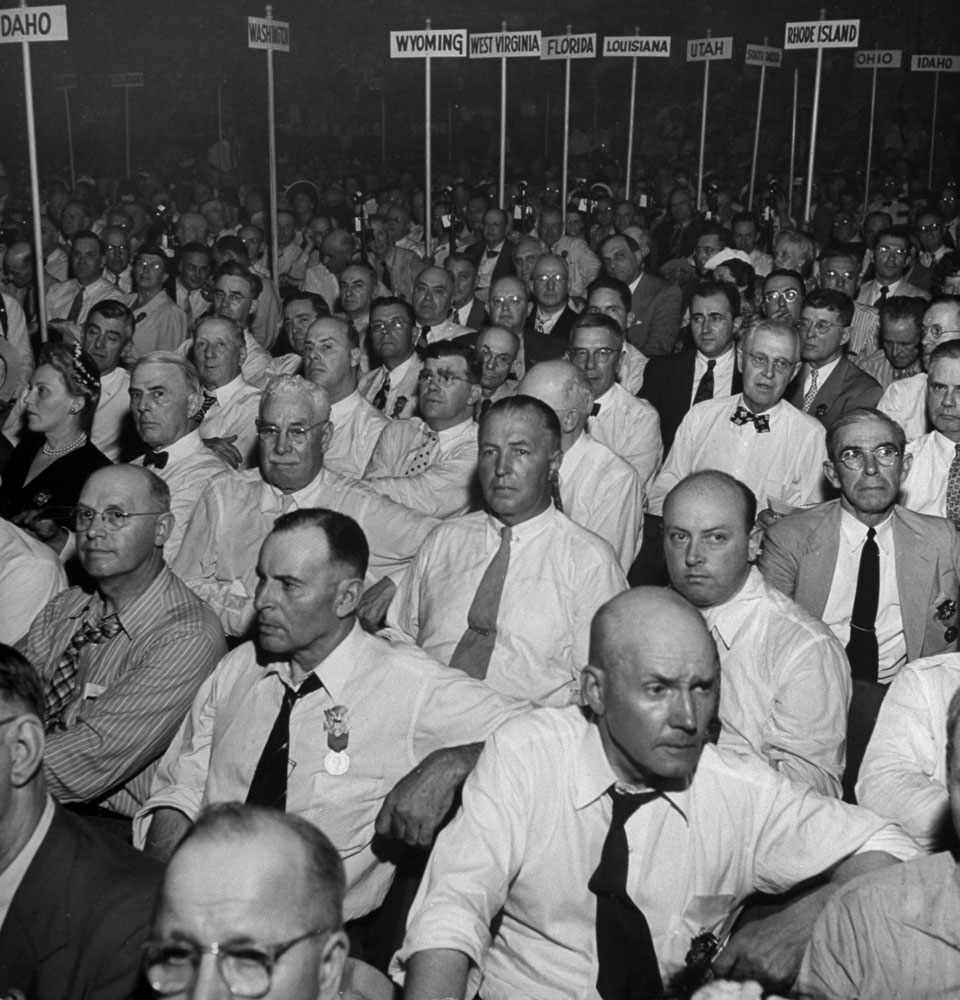
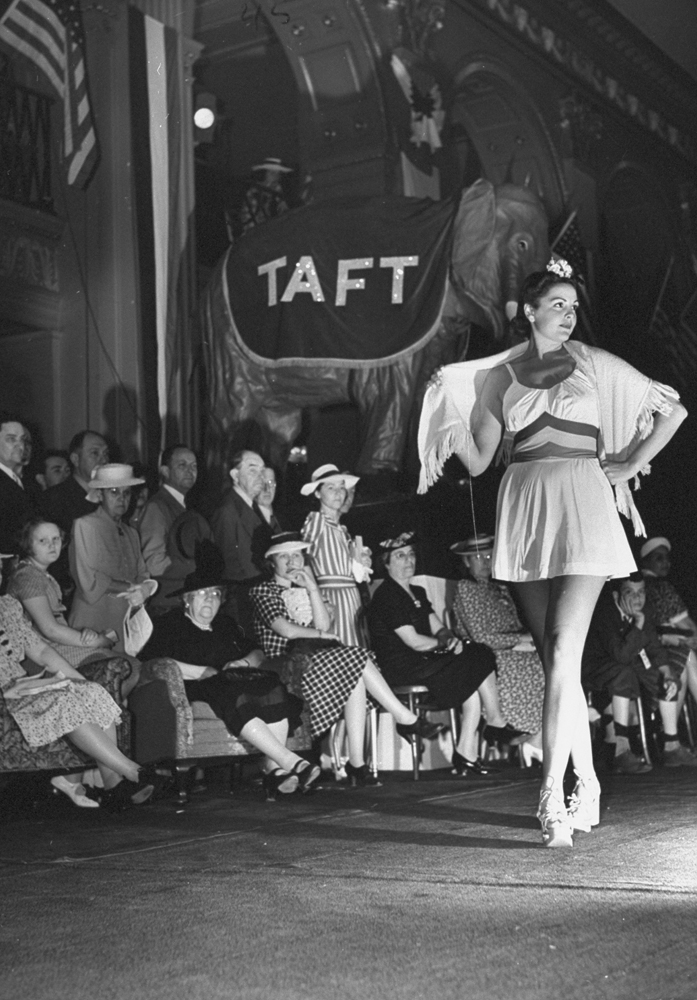
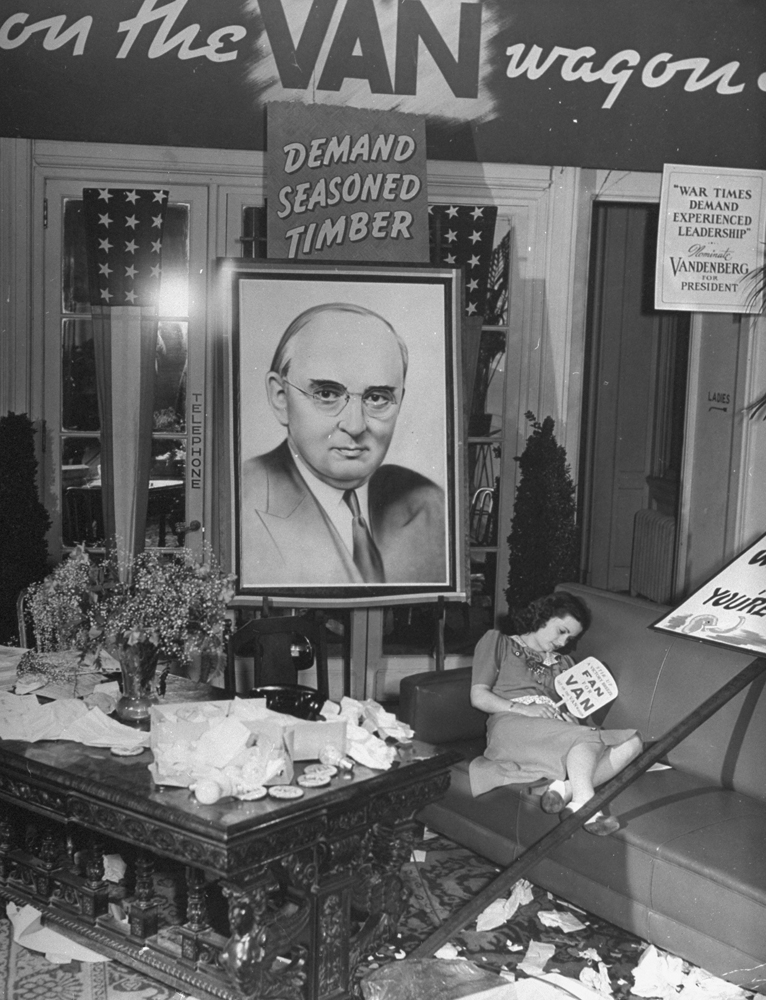
More Must-Reads from TIME
- Why Trump’s Message Worked on Latino Men
- What Trump’s Win Could Mean for Housing
- The 100 Must-Read Books of 2024
- Sleep Doctors Share the 1 Tip That’s Changed Their Lives
- Column: Let’s Bring Back Romance
- What It’s Like to Have Long COVID As a Kid
- FX’s Say Nothing Is the Must-Watch Political Thriller of 2024
- Merle Bombardieri Is Helping People Make the Baby Decision
Contact us at letters@time.com